

Finding the Best Creative Writing Blogs on the Internet
Regardless how many books I’ve written or sold, if I’m not still educating myself about writing, I’m stagnating.
My late mother taught me the value of life-long learning. Not only was she a piano teacher into her eighties, but she was also a piano student.
One of the most powerful learning tools today is the internet. But you could surf through endless writing blogs before finally finding which are the best for you and worthy of your time.
So I asked my team to research what’s out there, and we’ve compiled a short list to get you started. But you also know how to search by specifying genres and areas of interest, so don’t stop here. Our list is by no means exhaustive, and I haven’t even included all the ones I enjoy.
Here, then, are just suggestions of a few blogs you might want to check out to start your own list of writing resources —and we list them in alphabetical order:

- Become a Writer Today
Through his blog Become a Writer Today , Bryan Collins focuses on the needs of new writers.
A non-fiction writer, blogger, and podcaster, Bryan writes on those genres, as well as on self-publishing . He’s written two 3-book series, “Become a Better Writer Today” and “The Power of Creativity.”
A team of writers cover the business side of writing and such topics as writer’s block , formatting, and best practices.
- The Creative Penn
A New York Times and USA Today bestselling thriller author, Joanna Penn is behind The Creative Penn .
She also writes books for writers—her 21 titles have sold more than a half million copies. She’s a speaker, an entrepreneur, runs Curl Up Press, and has been named one of the top 100 Creative Professionals in the UK.
Joanna’s blog focuses on self-publishing, marketing, and writing. The Creative Penn podcast offers more than 350 episodes on writing.
- Creative Writing Now
Founded by writing teacher Nancy Strauss, Creative Writing Now offers courses, tips , prompts, and information on writing contests. Writing teachers will find lesson plans as well.
DIY MFA serves as a do-it-yourself manual for the equivalent of a Master of Fine Arts in writing without the expense. It centers on writing with focus, reading with purpose, building your writing community, and how to discover the writing tools available online and off.
Founded by author and podcaster Gabriela Pereira, the site posts on everything from playwriting to surviving rejection, travel writing, and many other writing topics. She offers a “ writer igniter ” that generates writing prompts.
- Jane Friedman
A must read for writers and publishers, blogger Jane Friedman is one of the leading voices in the digital age of publishing.
She has more than 20 years’ experience in the industry, publishes The Hot Sheet (a newsletter for authors), is a columnist for Publishers Weekly , a professor with The Great Courses ( How to Publish Your Book ), and wrote The Business of Being a Writer .
Jane’s blog offers how-to’s on publishing, writing a book proposal , finding a literary agent , and many other such topics.
- Helping Writers Become Authors
Through her website Helping Writers Become Authors , K.M. Weiland has published more than 1,200 blog posts educating writers on the ins and outs and dos and don’ts of writing and publishing.
She offers a bi-monthly e-letter, a podcast, and a vlog. She writes historical and speculative fiction, as well as how-to books, including Outlining Your Novel and Structuring Your Novel .
- Live Write Thrive
Novelist, copyeditor, and writing coach C.S. Lakin created Live Write Thrive to help write your novel with posts like “ The Challenges of Believability in Writing Science Fiction ” and “ The 3 Ways to Show Emotion in Your Characters .”
Bridget and Brendan McNulty and Dagmar Timler co-founded Now Novel , a platform designed to help you craft your story .
The blog offers information for writers at every stage, a character writing hub, productivity tips, and help creating fantasy worlds.
- Pro Writing Aid
Pro Writing Aid is a desktop app you can use with programs like Scrivener , Word, and Google Docs. It catches grammar errors, suggests style changes, and even checks your work for plagiarism.
Their blog covers which writing apps are best, the writing process, blogging and content writing, grammar rules , and business writing.
- Write It Sideways
Founded by Suzannah Windsor, Write It Sideways is for aspiring and emerging writers .
A team of writers answers questions budding writers ask, and blogs on things like writer’s intuition,“Confessions of a Writing Group Virgin,” and “Here’s the Type of Hate Mail Bloggers Get.”
- Writers Helping Writers
Authors Angela Ackerman and Becca Puglisi created Writers Helping Writers for new writers, seasoned writers, editors, and writing teachers. The blog offers advice on technique and strategy, as well as “Navigating the Changing Face of Book Promotion with Smart, Effective Strategies” and “ How To Stop Self-Doubt From Holding You Back From Writing .”
- The Write Practice
Joe Bunting started The Write Practice to help writers become better through practice.
He offers writing prompts and provides a platform for fellow writers to offer feedback on what you’ve written.
And of course you’re always welcome to visit me at JerryJenkins.com .
Over the last half century I’ve been an editor, a publisher, a nonfiction author, and a novelist—yet I’m still learning and growing like you. I offer a 20-Step Guide on How to Write a Book , How to Develop a Great Story Idea , Find the Right Writers Group and How to Write Dialogue .
- Time to Get to Work
The best mentoring comes from seasoned writers proven in their fields. So dive into these blog sites and commit to life-long learning.

Are You Making This #1 Amateur Writing Mistake?

Faith-Based Words and Phrases

What You and I Can Learn From Patricia Raybon

Before you go, be sure to grab my FREE guide:
How to Write a Book: Everything You Need to Know in 20 Steps
Just tell me where to send it:
Enter your email to instantly access my ultimate guide:
Want to become a writer?
Get our 10-step guide that's helped 100,000+ of new writers (and get started on your writing journey in just a few minutes).
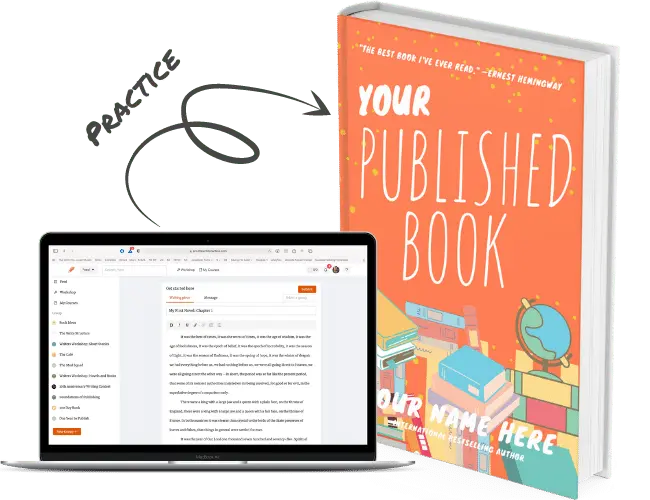
If you want to write professionally, you should know that it is completely different than amateur writing. When you write as an amateur, you have a larger margin of error.
However, if you are writing professionally, you should be aware that your work will be displayed to the public. This means that any errors you make will be scrutinized and may have an impact on your reputation as a writer.
So, it is imperative that you gain as much knowledge as possible before you show off your work to the public. One of the best ways to do this is to read great content from creative writing blogs.
These blogs are designed specifically for writers and contain well-crafted content that will greatly improve your writing skills. So, before you begin your professional writing career, you should be aware of the best writing blogs to get advice from.
Here are the top writing blogs that every writer should follow:
1. The Creative Penn
The Creative Penn is one of the world's most comprehensive writing blogs. Joanna Penn, a New York Times and USA Today bestselling author, was the first to establish it. She has decades of writing experience, and her blog is chock-full of useful information about self-publishing, book marketing, and writing in general.
What distinguishes The Creative Penn from other writing blogs is that it not only has great articles, but also a podcast and audio about writing. Overall, The blog is a fantastic and multifaceted blog that will assist you in your book publishing journey.
2. Jane Friedman
The Jane Friedman blog is a fantastic source of publishing and writing advice for both new and experienced writers. Jane Friedman, a veteran author with over 20 years of experience who has worked with various literary organizations over the years, founded the blog.
The content in this blog is all top-quality, and is meant to help writers improve in various facets of the writer’s journey. Whether you are thinking of publishing a book traditionally, or trying your hand at self-publishing, the Jane Friedman blog is a great resource.
3. Helping Writers Become Authors
Helping Writers Become Authors is a fantastic resource for learning how to create great literary works. The blog was created by K.M. Weiland.
The blog is mostly made up of detailed writing tips. These writing lessons are available in a variety of formats, including articles, vlogs, and podcasts.
The articles cover everything from story structure to character creation techniques. Overall, Helping Writers Become Authors is an excellent writing resource for all writers.
4. The Write Life
The Write Life is unique amongst writing blogs because, aside from giving great writing tips, it is a potent resource for freelance writers. Aside from teaching writers how to write properly, the site also offers detailed tips on how to earn money as a freelance writer.
It also covers various aspects of writing life, such as learning how to blog properly, book marketing, using SEO properly, and, of course, publishing a book of your very own.
The blog also offers practical content that will help writers hone their craft , and achieve a more versatile skill set in the process. The main appeal of The Write Life blog is that it teaches writers not only how to improve their writing skills but also how to make writing a viable profession.
It can be difficult to earn money as a writer, and the Write Life teaches writers how to tap into this skill. This practical and real-world view of The Write Life makes it a site to visit for new and veteran writers alike.
5. The Jeff Goins Blog
The Jeff Goins Blog is a multifaceted blog that offers writing advice on various platforms. The site was founded by award-winning author Jeff Goins and is predominantly designed to help writers reach their true potential.
The contents of the blog are well-crafted and multi-faceted. In many ways, the blog is not just about writing; it is also about cultivating creativity in all facets of life.
All in all, the Goins Writer is a potent resource that will help you grow as a writer.
6. Jerry Jenkins
If you want to make your writing as professional as possible, the Jerry B. Jenkins blog is a potent resource. It was founded by New York Times bestselling author Jerry B. Jenkins. He has published nearly 200 books and is the author of the bestselling Left Behind series.
The blog offers a free writing assessment and is specially designed to help writers achieve their dreams of becoming authors. The blog contains well-written content and writing courses that will help you achieve your full potential as a writer.
7. Write to Done
The Write to Done blog is a useful resource for writers of all genres. The blog was founded by veteran author Mary Jaksch, and whether you want to write a fiction or non-fiction book, the blog is a great place to start. The content is diverse and not limited to writing tips.
It also includes articles on book promotion, time management, and staying motivated while writing. The blog also contains literary industry news and updates to further immerse you in the literary industry.
Overall, the blog is an excellent writing resource that will propel your writing career to new heights.
Starting out as a professional writer can be a difficult prospect. You will be expected to create great work for your audience. It is also expected that your work is original and free from any errors.
One of the best ways to hone your writing skills is to read great content from writing blogs. However, there are a lot of writing blogs out there and you should only take tips from the best ones.
With this short list of writing blogs, you will be able to enhance your writing skills to the highest degree.
Become a Self-Published Author in 3 Simple Steps
Powered by Experts, Published by You. Reach 40,000+ Retailers & Libraries Around the World. Concierge Service. Tailored Packages. BBB Accredited Business. 100% Royalty Program.

Related Articles
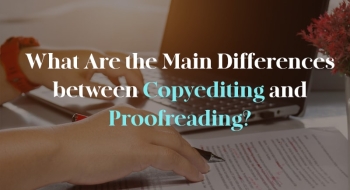
If you just finished writing the first copy of your manuscript, the next step would naturally be the editing process. This is by far one of the most important aspects...
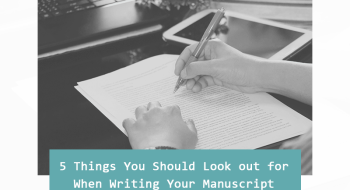
Writing your own book is as multifaceted a process as it is publishing it. One of the first stages in the process is drafting...
Get started now
Privacy Policy: Writers Republic will not give, sell, or otherwise transfer addresses to any other party for the purposes of initiating, or enabling others to initiate, electronic mail messages.
Privacy Policy
Privacy commitment to our authors, effective date:.
Writers Republic abides to every author’s personal information being entrusted to us. And with that, we have stipulated a privacy policy that will show the processes of our ways in collating our clients’ personal details as needed in the publication process. As an established publishing company, our prohibitions strictly includes sharing, selling, or any illicit transactions of personal information from our clients.
Personal Details Needed:
- b) E-mail Address
- c) Phone Number(s)
- d) Physical/Billing Address
- e) Book Information
Authors can find our privacy policy through all forms of compiled and submitted information to either the company’s employees, through e-mail and phone, or from our website www.writersrepublic.com.
Information Usage
The use of the author’s personal information will take place in completing registrations, necessary materials to be used in publication arrangements with our specialists, and payment transactions that will be accomplished from our services and packages.
Registration Process
Users must fill out and complete any registration form before they can access anywhere in the Site as they wish to. These include the services, promos, blogs, and rest of the facets they can explore once they are registered to the system. The authors are entitled to a free publishing guide to give you a brief idea about self-publishing. Relevant features also include the Authors’ Lounge that teaches you some publishing tips you will be needing during the procedure.
Providing the user’s contact information like his/her name and email address during the registration will be necessary for our specialists in keeping in touch with the client anytime in regards to the manuscript submission, publishing, and finally, expanding his/her book’s publicity by any means. Our registered authors are free from accessing the website with his/her personal data or they may reach our customer service representatives through telephone or e-mail for further information and updates on our services. Aforementioned, all of the author’s personal data submitted to us will be kept confidential.
Information Sharing
Sharing of the client’s personal data to third parties is considered a violation unless it is conducted in a way it is indicated strictly in the privacy policy. Authors must understand that we are required to provide their personal data to other businesses that will to provide the required assistance in succeeding the publishing procedure, the following involves payment processor or a third party vendor benefit. These associated firms has established the consent to use the client’s personal data for necessary purposes of providing a quality service to Writers Republic.
In any case that Writers republic will conduct a union with associated companies, procurement, or sale of all or a share of its properties, authors will be notified through a notice in our website or sent through email of any ownership change or the utilization of the user’s personal data, in addition to the selections provided regarding his/ her personal information.
The company solely shares the collected information to the firms we do business with to acquaint them with the services or assistance needed for the publication. The data required plainly comprises with order completion, payment transactions, and the rest of the necessary processes. We can guarantee our users that the submission of these information will not be concomitant to any confidentialities that will identify a person’s identity. Privacy rules include prohibitions of sharing, or keeping of any private information for unrelated businesses to our company.
Data Protection
Our authors’ confidentiality comes first all the time. We follow the widely accepted preference in safekeeping the user’s personal data during its transmission and by the moment it is stored in our system. Writers Republic ensures both online and offline security of all information provided by our authors through the website. Any electronic transmittal over the internet may not be overall safe, hence the company cannot commit to an absolute protection.
The client’s agreement entails his/her responsibility in sustaining the account access, any personal information, benefits, company’s services, logins, and passwords. The author’s adherence to these sanctions include acquainting Writers Republic through phone, e-mail, or any means of communication, should there be any inadmissible access to the author’s account and all the applicable company data and services. Any direct, involuntary, minor, or distinctive damages caused due to client’s failure to adhere and/or inefficiency in utilizing the company’s site, services, and transactions will not be held liable to Writer’s Republic.
Any messages received or consequences resulted due to the user’s technical unfamiliarity or insufficient knowledge will not be held accountable to Writers Republic. Furthermore, any damages incurred due to negligence to the information entered or impermissible access will leave no liability to the company. These reparations may denote to but not restricted to revenue loss or reduced profit from the entire process.
Electronic Tracking Tools and Site Traffic Usage
Writers Republic website collects SSI (Standard Statistical Information) about the site visits and keeps a record of it as much as other websites do. Please be advised that the IP addresses, browser information, its timestamps, and referred pages are tracked for the sole purpose of maintenance and to construct the site noticeable and valuable as it can be. No accumulated data is joined routinely to other information we collect from our users.
The site server gathers fundamental technical data from our site visitors which include their IP address, domain label, and referral information. Alongside with the said above, the site also tracks the total count of the site activity from our online visitors for the intention of analyzing the flows of our site traffic. For our statistic intents, we may incorporate the information from one visitor with another into group facts, which will probably be shared on a cumulative base.
The technologies in particular: beacons, cookies, tags, and scripts are utilized by writersrepublic.com, our publishing & marketing associates, publicity service providers. These innovations are used in examining trends, website managing, tracking users’ navigation anywhere on the site and to collect public data about our user in entirety. We may obtain news founded on the utilization of these innovations by these firms on an individual as well as on an accumulated basis.
Writers Republic affiliates with third parties to offer positive features on website or to exhibit advertising based upon your web navigation activity also uses Local Storage Objects (LSOs) such as HTML 5 to gather and keep some data. Browsers may provide their own administrating tools in taking out HTML LSOs. To manage LSOs please click the link provided: http://www.macromedia.com/support/documentation/en/flashplayer/help/settings_manager07.html
Removing or Updating Your Information
Don’t hesitate to reach us directly anytime when you want to delete, update, or correct information you give over the phone or e-mail. For safety purposes, Writers Republic takes functional regulations in authenticating your identity before we grant you the access in changing and updating personal details. Your personal record and other data will be kept so long as you stay active as our site user or as necessary to offer you services. Please note that we’ll be using your information for necessary compliance of lawful commitments, imposing of agreements, and determination of disputes.
Contributors
Writers Republic will be requiring your contributors’ names to be indicated in the book publication when you opt to add them as contributors for your book publishing service. We will store your contributors’ personal details for the sole purpose of fixing their names on one of the pages of your book. Your contributors may reach us at [email protected] to request for removal of personal information from our system.
3rd Party Sites Link
Our company recommends you to carefully go over to the privacy policy of any website you visit or send personal information to. Our website comprises links to other sites whose norms and privacy regulations may contrast to ours. Accordingly, providing of personal data to these websites is administrated by their privacy rules and not ours.
Social Media Features & Widgets
Writers Republic website involves social media features such as: Facebook “Like” button and widget, such as the interactive mini-programs that run on our site or the “Share This” button. Please note that these features may set a cookie to allow the feature to appropriately function. It may also collect your IP address and which page you are visiting on our site. Your interactions with these features are either presented directly on our website or by a third party.
Announcements and Newsletters
Writers Republic will be inquiring your e-mail address if you’re interested to subscribe from our self-publishing updates, newsletters, articles, or periodic product and service announcements. You may choose to unsubscribe by clicking on the “Unsubscribe” button at the end part of the mail sent to you should you no longer want to receive emails from us.
Discounts and Promos
We offer promos and special deals on out publishing and marketing services from any given point of time. Thus, we may request for your contact details that includes your name, shipping address, demographic data, and educational attainment which will be utilized to inform the winners and prizes. Participation in any contest and promo is voluntary. The purpose for our promos, discounts, and contests, will be employed to assess and enhance eminence of or services to our clients.
Policy Changes
Any modifications or changes to be applied in our Privacy Policy will oblige Writers Republic to provide a notice on the website or by email before the change will take effect. Therefore, we recommend you to go over this page for any probable alterations and updates on our privacy norms. You may send us an email at [email protected] for all concerns, queries, and updates of personal details such as your email and mailing address. This also serves as your alternative to reach us if you want to withdraw your service or if you no longer want to receive any updates from our end.
Writers Republic will not be held accountable for any check payment issues, apart from the checks that are delivered to the address indicated below.
Writers Republic Publishing 515 Summit Ave. Unit R1, Union City, NJ 07087, USA
- Creativity Techniques
26+ Creative Writing Tips for Young Writers
So you want to be a writer? And not just any writer, you want to be a creative writer. The road to being a legendary storyteller won’t be easy, but with our creative writing tips for kids, you’ll be on the right track! Creative writing isn’t just about writing stories. You could write poems, graphic novels, song lyrics and even movie scripts. But there is one thing you’ll need and that is good creative writing skills.
Here are over 26 tips to improve your creative writing skills :
Read a wide range of books
When it comes to creative writing, reading is essential. Reading allows you to explore the styles of other writers and gain inspiration to improve your own writing. But don’t just limit yourself to reading only popular books or your favourites. Read all sorts of books, everything from fairytales to scary stories. Take a look at comics, short stories, novels and poetry. Just fill your heads with the knowledge and wisdom of other writers and soon you’ll be just like them!
Write about real-life events
The hardest thing about creative writing is connecting emotionally with your audience. By focusing your writing on real-life events, you know that in some way or another your readers will be able to relate. And with creative writing you don’t need to use real names or details – There are certain things you can keep private while writing about the rare details. Using real-life events is also a good way to find inspiration for your stories.
Be imaginative
Be as crazy and wild as you like with your imagination. Create your world, your own monsters , or even your own language! The more imaginative your story, the more exciting it will be to read. Remember that there are no rules on what makes a good idea in creative writing. So don’t be afraid to make stuff up!
Find your writing style
Thes best writers have a particular style about them. When you think of Roald Dahl , you know his books are going to have a sense of humour. While with Dr Seuss , you’re prepared to read some funny new words . Alternatively, when you look at R.L.Stine, you know that he is all about the horror. Think about your own writing style. Do you want to be a horror writer? Maybe someone who always writes in the first person? Will always focus your books on your culture or a particular character?
Stick to a routine
Routine is extremely important to writers. If you just write some stuff here and there, it’s likely that you’ll soon give up on writing altogether! A strict routine means that every day at a certain time you will make time to write about something, anything. Even if you’re bored or can’t think of anything, you’ll still pick up that pencil and write. Soon enough you’ll get into the habit of writing good stuff daily and this is definitely important for anyone who wants to be a professional creative writer!
Know your audience
Writing isn’t just about thinking about your own interests, it’s also about thinking about the interests of your audience. If you want to excite fellow classmates, know what they like. Do they like football , monsters or a particular video game? With that knowledge, you can create the most popular book for your target audience. A book that they can’t stop reading and will recommend to others!
Daily Exercises
To keep your creative writing skills up to scratch it is important to keep practising every day. Even if you have no inspiration. At times when your mind is blank, you should try to use tools like writing prompts , video prompts or other ways of coming up with ideas . You could even take a look at these daily writing exercises as an example. We even created a whole list of over 100 creative writing exercises to try out when you need some inspiration or ideas.
Work together with others
Everyone needs a little help now and then. We recommend joining a writing club or finding other classmates who are also interested in writing to improve your own creative writing skills. Together you can share ideas, tips and even write a story together! A good storytelling game to play in a group is the “ finish the story” game .
Get feedback
Without feedback, you’ll never be able to improve your writing. Feedback, whether good or bad is important to all writers. Good feedback gives you the motivation to carry on. While bad feedback just gives you areas to improve and adapt your writing, so you can be the best! After every piece of writing always try to get feedback from it, whether it is from friends, family, teachers or an online writing community .
Enter writing competitions
The best way to improve your creative writing is by entering all sorts of writing competitions . Whether it’s a poetry competition or short story competition, competitions let you compete against other writers and even help you get useful feedback on your writing. Most competitions even have rules to structure your writing, these rules can help you prepare for the real world of writing and getting your work published. And not only that you might even win some cool prizes!
Keep a notebook
Every writer’s best friend is their notebook. Wherever you go make sure you have a notebook handy to jot down any ideas you get on the go. Inspiration can come from anywhere , so the next time you get an idea instead of forgetting about it, write it down. You never know, this idea could become a best-selling novel in the future.
Research your ideas
So, you got a couple of ideas for short stories. The next step is to research these ideas deeper.
Researching your ideas could involve reading books similar to your ideas or going online to learn more about a particular topic. For example, if you wanted to write a book on dragons, you would want to know everything about them in history to come up with a good, relatable storyline for your book.
Create Writing Goals
How do you know if your writing is improving over time? Simple – Just create writing goals for yourself. Examples of writing goals might include, to write 100 words every day or to write 600 words by the end of next week. Whatever your goals make sure you can measure them easily. That way you’ll know if you met them or not. You might want to take a look at these bullet journal layouts for writers to help you track the progress of your writing.
Follow your passions
Writing can be tedious and many people even give up after writing a few words. The only way you can keep that fire burning is by writing about your true passions. Whatever it is you enjoy doing or love, you could just write about those things. These are the types of things you’ll enjoy researching and already know so much about, making writing a whole lot more fun!
Don’t Settle for the first draft
You finally wrote your first story. But the writing process isn’t complete yet! Now it’s time to read your story and make the all-important edits. Editing your story is more than just fixing spelling or grammar mistakes. It’s also about criticising your own work and looking for areas of improvement. For example, is the conflict strong enough? Is your opening line exciting? How can you improve your ending?
Plan before writing
Never just jump into writing your story. Always plan first! Whether this means listing down the key scenes in your story or using a storyboard template to map out these scenes. You should have an outline of your story somewhere, which you can refer to when actually writing your story. This way you won’t make basic mistakes like not having a climax in your story which builds up to your main conflict or missing crucial characters out.
It’s strange the difference it makes to read your writing out aloud compared to reading it in your head. When reading aloud you tend to notice more mistakes in your sentences or discover paragraphs which make no sense at all. You might even want to read your story aloud to your family or a group of friends to get feedback on how your story sounds.
Pace your story
Pacing is important. You don’t want to just start and then quickly jump into the main conflict because this will take all the excitement away from your conflict. And at the same time, you don’t want to give the solution away too early and this will make your conflict too easy for your characters to solve. The key is to gradually build up to your conflict by describing your characters and the many events that lead up to the main conflict. Then you might want to make the conflict more difficult for your characters by including more than one issue in your story to solve.
Think about themes
Every story has a theme or moral. Some stories are about friendship, others are about the dangers of trusting strangers. And a story can even have more than one theme. The point of a theme is to give something valuable to your readers once they have finished reading your book. In other words, to give them a life lesson, they’ll never forget!
Use dialogue carefully
Dialogue is a tricky thing to get right. Your whole story should not be made up of dialogue unless you’re writing a script. Alternatively, it can be strange to include no dialogue at all in your story. The purpose of dialogue should be to move your story forward. It should also help your readers learn more about a particular character’s personality and their relationship with other characters in your book.
One thing to avoid with dialogue is… small talk! There’s no point in writing dialogue, such as “How’s the weather?”, if your story has nothing to do with the weather. This is because it doesn’t move your story along. For more information check out this guide on how to write dialogue in a story .
Write now, edit later
Writing is a magical process. Don’t lose that magic by focusing on editing your sentences while you’re still writing your story up. Not only could this make your story sound fragmented, but you might also forget some key ideas to include in your story or take away the imagination from your writing. When it comes to creative writing, just write and come back to editing your story later.
Ask yourself questions
Always question your writing. Once done, think about any holes in your story. Is there something the reader won’t understand or needs further describing? What if your character finds another solution to solving the conflict? How about adding a new character or removing a character from your story? There are so many questions to ask and keep asking them until you feel confident about your final piece.
Create a dedicated writing space
Some kids like writing on their beds, others at the kitchen table. While this is good for beginners, going pro with your writing might require having a dedicated writing space. Some of the basics you’ll need is a desk and comfy chair, along with writing materials like pens, pencils and notebooks. But to really create an inspiring place, you could also stick some beautiful pictures, some inspiring quotes from writers and anything else that will keep you motivated and prepared.
Beware of flowery words
Vocabulary is good. It’s always exciting when you learn a new word that you have never heard before. But don’t go around plotting in complicated words into your story, unless it’s necessary to show a character’s personality. Most long words are not natural sounding, meaning your audience will have a hard time relating to your story if it’s full of complicated words from the dictionary like Xenophobia or Xylograph .
Create believable characters
Nobody’s perfect. And why should your story characters be any different? To create believable characters, you’ll need to give them some common flaws as well as some really cool strengths. Your character’s flaws can be used as a setback to why they can’t achieve their goals, while their strengths are the things that will help win over adversity. Just think about your own strengths and weaknesses and use them as inspirations for your storybook characters. You can use the Imagine Forest character creator to plan out your story characters.
Show, don’t tell
You can say that someone is nice or you can show them how that person is nice. Take the following as an example, “Katie was a nice girl.” Now compare that sentence to this, “Katie spent her weekends at the retirement home, singing to the seniors and making them laugh.”. The difference between the two sentences is huge. The first one sounds boring and you don’t really know why Katie is nice. While in the second sentence, you get the sense that Katie is nice from her actions without even using the word nice in the sentence!
Make the conflict impossible
Imagine the following scenario, you are a championship boxer who has won many medals over the year and the conflict is…Well, you got a boxing match coming up. Now that doesn’t sound so exciting! In fact, most readers won’t even care about the boxer winning the match or not!
Now imagine this scenario: You’re a poor kid from New Jersey, you barely have enough money to pay the bills. You never did any professional boxing, but you want to enter a boxing competition, so you can win and use the money to pay your bills.
The second scenario has a bigger mountain to climb. In other words, a much harder challenge to face compared to the character in the first scenario. Giving your characters an almost impossible task or conflict is essential in good story-telling.
Write powerful scenes
Scenes help build a picture in your reader’s mind without even including any actual pictures in your story. Creating powerful scenes involves more than describing the appearance of a setting, it’s also about thinking about the smell, the sounds and what your characters are feeling while they are in a particular setting. By being descriptive with your scenes, your audience can imagine themselves being right there with characters through the hard times and good times!
There’s nothing worse than an ending which leaves the reader feeling underwhelmed. You read all the way through and then it just ends in the most typical, obvious way ever! Strong endings don’t always end on a happy ending. They can end with a sad ending or a cliff-hanger. In fact, most stories actually leave the reader with more questions in their head, as they wonder what happens next. This then gives you the opportunity to create even more books to continue the story and keep your readers hooked for life (or at least for a very long time)!
Over 25 creative writing tips later and you should now be ready to master the art of creative writing! The most important tip for all you creative writers out there is to be imaginative! Without a good imagination, you’ll struggle to wow your audience with your writing skills. Do you have any more creative writing tips to share? Let us know in the comments!
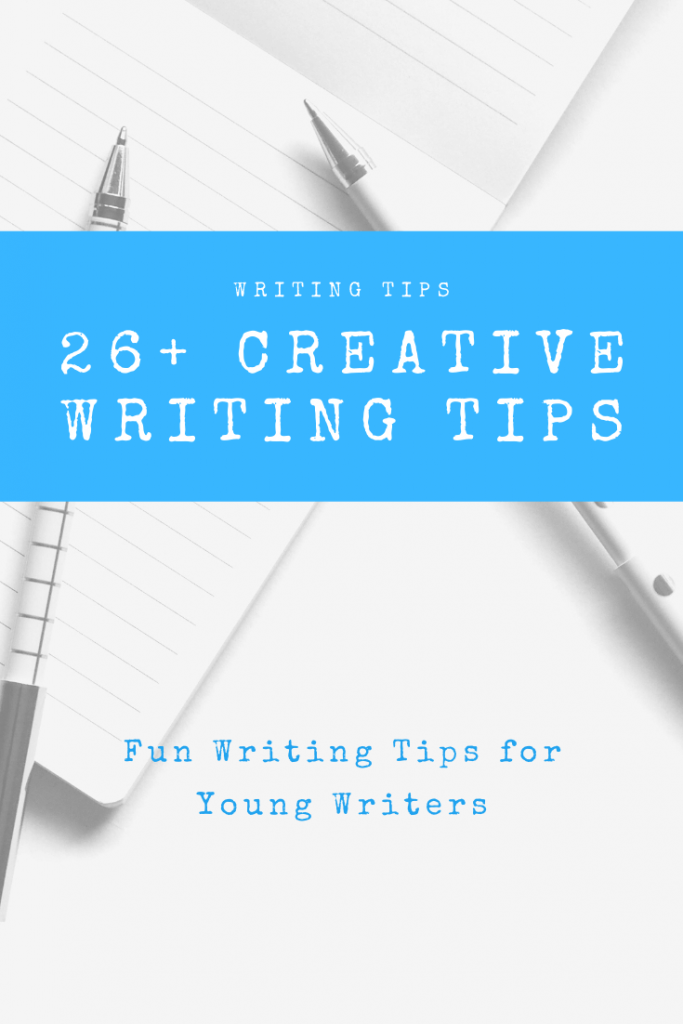
Marty the wizard is the master of Imagine Forest. When he's not reading a ton of books or writing some of his own tales, he loves to be surrounded by the magical creatures that live in Imagine Forest. While living in his tree house he has devoted his time to helping children around the world with their writing skills and creativity.
Related Posts
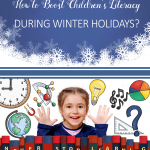
Comments loading...
- Writing Courses Online
- Course Testimonials
latest posts

How to Improve Your Writing in Three Easy Steps

Verbeter Jou Kans Om ʼn Kortverhaal Kompetisie Te Wen Só

Topics to Write About: How to Choose

Free Writing Competition – My Writing Journey

Logical Flow: The Key to Compelling Writing

Can You Make a Living From Travel Writing? We Ask Travel Writer Gabi Logan

Four Habits of Successful Writers

Famous Quotes on Writing

10 Effective Ways to Improve Your Creative Writing

Writing a story is a craft that requires constant tweaks, edits and trial and error by the writer. Here are ten tips to improve your creative writing and save you hours of painful re-writing in the future.
(1) Don’t underestimate your reader
You have a fantastic plot, your characters are realistic, the setting is ideal and you want to make sure that the reader gets every little detail that you have in mind. Great!
The only problem is that you may be tempted to bombard your reader with many intimate details so that they see it exactly as you do. In-depth descriptions can be useful and effective, but don’t overdo it. Keep your writing neat and tight; don’t waste space on long, rambling descriptions about things that aren’t necessary to your story.
Wouldn’t it be ideal if editors received submissions and decided to look past the typos and incorrect formatting because they think it might be a little gem of a story? The fact is that if your manuscript is full of errors or doesn’t follow the required guidelines then it’s going in the trash.
Don’t rely on your computer’s spell checker. If you make a typo, the computer will not warn you if you’ve still spelt a valid word. Your gorgeous heroine meets the bog (boy) of her dreams? The wealthy doctor places his golf ball on his tea (tee)?
(3) Give Your Characters Life
Characters are vital to your story so treat them with care and give them that breath of life that you, the writer, have the power to give. Give them unique characteristics; make them believable by making them have a purpose, motivation and conflicts to resolve.
(4) Use Strong Words
You want your writing to sound decisive, so use words that get the point across. Did Bob’s really big headache cause him a lot of pain or did Bob’s migraine cause excruciating pain? But remember not to overdo it: don’t use words that the reader won’t understand, you want to use strong words, not confusing or extravagant ones.
(5) Show Don’t Tell.
Who hasn’t heard that one before? But it’s a valid point and a useful rule for all writers. Fiction is for entertainment, so entertain your reader! Give them an excuse to escape into the reality that you have created. Let them see, hear, feel, smell, laugh, cry, love and hate. Show your reader the world that you’ve created, don’t just tell them about it.
(6) Check your Commas
While commas can be effective many inexperienced writers tend to sprinkle their sentences with them. When placed incorrectly, commas can chop up your sentences and sometimes even alter the meaning. Brush up on your high-school grammar; your work will improve with that alone.
(7) Grab their Attention from the Start
Opening lines are often referred to as ‘the hook’ because that’s exactly what you want them to be. You get the reader’s attention and reel them in for the rest of the story. Try something powerful to kick-start your story. For example: ‘Mark’s back broke with an audible crack’ or ‘Eliza didn’t realize that she was going blind’ or ‘The bullet that pierced Henry’s back and left him paralyzed was meant for a homeless man’. Each of these lines makes the reader ask ‘why?’ and once they ask that question, the reader will keep on reading until they find the answer.
(8) Give Your Reader a Satisfactory Ending
You can leave the reader speculating or wondering why at the end of your story, but try to resolve as much as you can. If your reader finishes the last sentence and is still asking questions about what happened to who and why, then you still need to tie up the loose ends.
(9) Sober up
Think of writing as going out to a bar: you go out, the lighting is dim, it’s noisy, maybe you drink too much but you meet a person who’s attractive, witty, shares the same interests as you and you’re smitten by them. A few days later you meet for coffee: are they as good looking or charming as you remember?
This can happen with writing. You become intoxicated with the feeling of success and think that you have written an award-winning piece. The question is, once you’ve sobered up, is it as good as you thought it was? Put your manuscript away and try not to think about it for a couple days. Then take it out and read it with a clear, open mind. Read it through once from beginning to end, then break it up into sections, then read it sentence by sentence. Is it as good as you remembered? If so, then well done! But the odds are that if you were too excited about finally wrapping it up, then you’ll find some points to revise.
(10) Challenge Yourself
Are you trying too hard to write in a specific genre or style? Do you only write short stories or novels or poems or movie scripts? Give that creative muscle a workout and try something different. It will be a refreshing exercise for your mind and you might be surprised by the result. If you don’t succeed then you have still learnt a valuable lesson.
About the Author:

Photo Credit: Flickr.com_gudmd.haralds

you might also like

TRY OUR FREE APP
Write your book in Reedsy Studio. Try the beloved writing app for free today.
Craft your masterpiece in Reedsy Studio
Plan, write, edit, and format your book in our free app made for authors.

Guides • Perfecting your Craft
Last updated on Dec 23, 2022
Creative Writing: 8 Fun Ways to Get Started
Creative writing is a written art form that uses the imagination to tell stories and compose essays, poetry, screenplays, novels, lyrics, and more. It can be defined in opposition to the dry and factual types of writing found in academic, technical, or journalistic texts.
Characterized by its ability to evoke emotion and engage readers, creative writing can tackle themes and ideas that one might struggle to discuss in cold, factual terms.
If you’re interested in the world of creative writing, we have eight fantastic exercises and activities to get you started.

1. Use writing prompts every week

Coming up with ideas for short stories can be challenging, which is why we created a directory of 1700+ creative writing prompts covering a wide range of genres and topics. Writing prompts are flexible in nature, they are meant to inspire you without being too constrictive. Overall, they are a great way to keep your creative muscles limber.
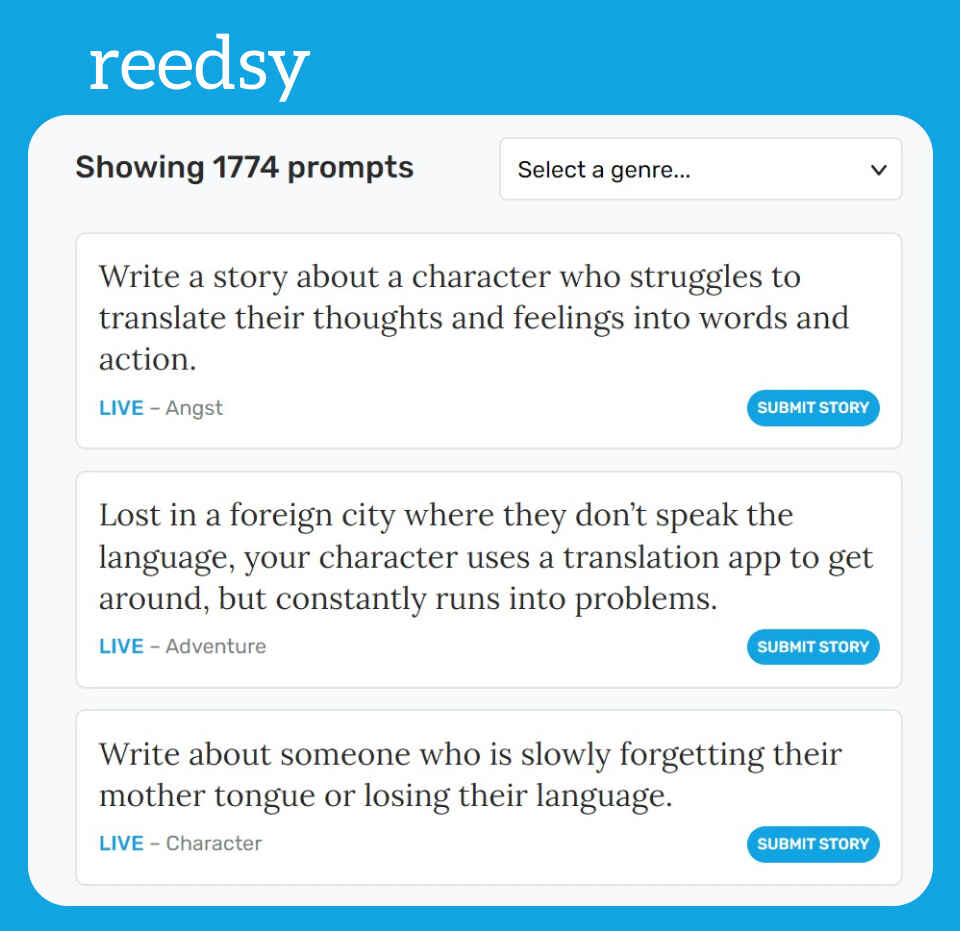
If you’re struggling for motivation, how does a hard deadline and a little prize money sound? Prompts-based writing contests are a fantastic way to dive into creative writing: the combination of due dates, friendly rivalries, prize money, and the potential to have your work published is often just what’s needed to propel you over the finish line.
We run a weekly writing contest over on Reedsy Prompts , where hundreds of writers from all around the world challenge themselves weekly to write a short story between 1,000 and 3,000 words for a chance to win the $250 prize. Furthermore, the community is very active in providing constructive feedback, support, and accountability to each other 一 something that will make your efforts even more worthwhile.
Take a peek at our directory of writing contests which features some of the most prestigious open writing competitions in the world.
2. Start journaling your days
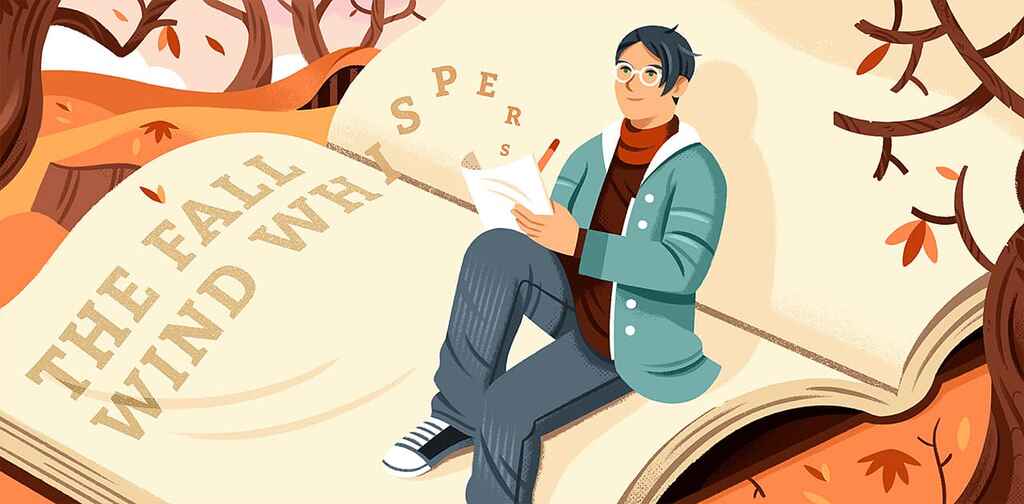
Another easy way to get started with creative writing is to keep a journal. We’re not talking about an hour-by-hour account of your day, but journaling as a way to express yourself without filters and find your ‘voice in writing’. If you’re unsure what to journal about, think of any daily experiences that have had an impact on you, such as…
Special moments . Did you lock yourself out of your house? Or did you catch a beautiful sunset on your way back from groceries? Capture those moments, and how you felt about them.
People . Did you have an unusual exchange with a stranger at the bar? Or did you reconnect with someone you haven’t seen in years? Share your thoughts about it.
World events . Is there something happening in the world right now that is triggering you? That’s understandable. You can reflect on it (and let some steam off) while journaling.
Memories . Did you go down memory lane after a glass of wine? Great, honor those memories by trying to recollect them in detail on paper so that they will always stay vivid in your mind.
Life decisions . Are you having an existential crisis about what to do with your life? Write down your thought process, and the pros and cons of the possible decisions in front of you. You’ll be surprised to discover that, not only is it a great creative writing exercise, but it can also actually help you sort your life out!
If you struggle to write consistently, sign up for our How to Write a Novel course to finish a novel in just 3 months.

NEW REEDSY COURSE
How to Write a Novel
Enroll in our course and become an author in three months.
3. Create an anonymous social media account

Like anonymous blogging, an incognito Twitter account sidesteps the pressure that comes with attaching your name to your work. Anonymously putting tiny stories out into the ether gives you the freedom to create without worrying about the consequences — which is great, so long as you don’t use it as an opportunity to troll people or spread conspiracy theories.
You could use the anonymous account in different ways. For example, you could…
- Tweet from unique perspectives (e.g. a dog observing human behavior );
- Create a parody account of real or fictional people (e.g. an English poet from the Middle Ages );
- Challenge yourself to write tiny flash fiction stories that fit into Twitter threads.
Just remember, you’re not doing this to fool anyone into thinking that your account is real: be a good citizen and mark yourself a fiction account in your bio.

But if you’re not really a social media kinda person, you may enjoy our next tip, which is a bit more on the analog side.

GET ACCOUNTABILITY
Meet writing coaches on Reedsy
Industry insiders can help you hone your craft, finish your draft, and get published.
4. Find an old photo and tell its story

Find a random old photo — maybe on the web, maybe from a photo album in a yard sale — and see what catches your attention. Look closely at it and try to imagine the story behind it. What was happening? Who are the people in it and how are they really feeling? Do they share a relationship, and of what kind? What are their goals and dreams?
In other words, bring the photo to life with your imagination. Don't be afraid to take artistic license with your story, as the goal is to be creative and have fun while writing.
How do you know it’s creative writing?
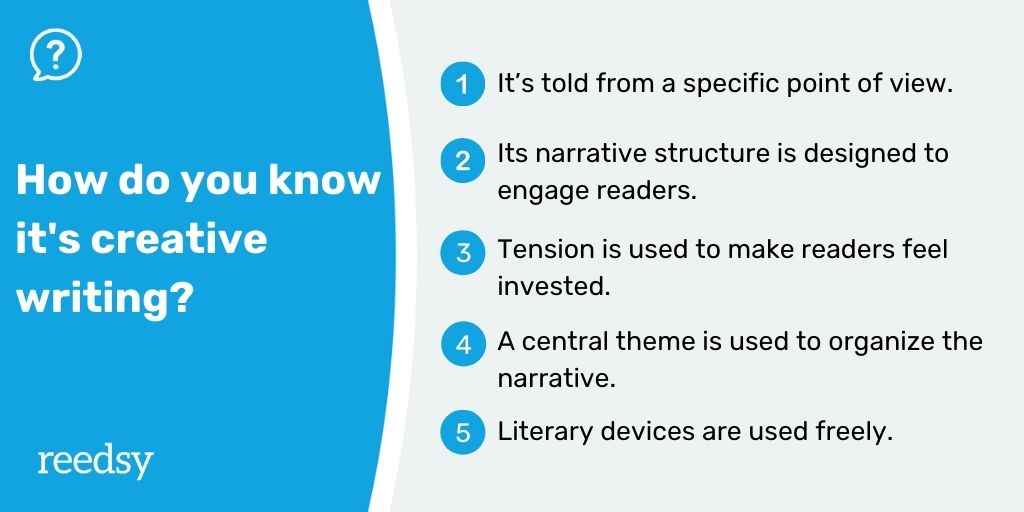
5. Create a character from a random name

Just as our universe started from a few simple elements, you can create a character from a few basic information, like their name, culture, and gender. Reedsy’s handy character name generator can help you with that, offering random names based on archetypes, Medieval roots, fantasy traits and more. A few examples? A Celtic heroine named Fíona O'Keefe, a hero’s sidekick named Aderine, or a Korean track star named Park Kang-Dae.
Once you've chosen their name, begin to develop their personality. Set a timer for 5–10 minutes and write anything that comes to mind about them. It could be a page from their FBI dossier, a childhood diary entry, or simply a scene about them boiling an egg.
Just ‘go with the flow’ and don’t stop writing until your time is up. Repeat the process a few times to further hone the personality. If you like what you end up with, you can always go deeper later by creating a character bible .
If a stream-of-consciousness exercise is not your thing, you can try to imagine your character in a specific situation and write down how’d they respond to it. For example, what if they were betrayed by a friend? Or if they were elected in power? To help you imagine situations to put your character in, we made a free template that you can download below.

FREE RESOURCE
Reedsy’s Character Questionnaire
40 questions to help you develop memorable characters.
6. Construct a character by people-watching

People watching is “the action of spending time idly observing people in a public place.” In a non-creepy way, ideally. Sit on a bench on a public square or on a road-side table at your favorite café, and start observing the people around you. Pay attention to any interesting quirks or behaviors, and write it down. Then put on your detective’s hat and try to figure out what that tells you about them.
For example, the man at the table next to you at the restaurant is reading the newspaper. His jacket and hat are neatly arranged next to him. The pages make a whipping sound as he briskly turns them, and he grimaces every time he reads a new article. Try to imagine what he’s reading, and why he’s reacting the way he is. Then, try to build a character with the information you have. It’s a fun creative exercise that will also, hopefully, help you better empathize with strangers.
7. “Map” something you feel strongly about into a new context

Placing your feelings into new contexts can be a powerful creative writing exercise. The idea is to start from something you feel strongly about, and frame it into a completely different context.
For example, suppose your heart is torn apart after you divorce your life-long partner: instead of journaling or crafting an entire novel about it, you could tell a story about a legendary trapeze duo whose partnership has come to an end. If you’re struggling with politicking and petty power dynamics at the office: what if you “mapped” your feelings onto an ant who resents being part of a colony? Directing your frustration at a queen ant can be a fun and cathartic writing experience (that won’t get you in trouble if your co-workers end up reading your story).
8. Capture the moment with a haiku

Haikus are poems from the Japanese tradition that aim to capture, in a few words, daily moments of insight (usually inspired by nature). In a nutshell, it’s about becoming mindful of your surroundings, and notice if you can see something in a new or deeper way 一 then use contrasting imagery to express whatever you noticed.
Here’s an example:
Bright orange bicycle
Speeding through the autumn leaves
A burst of color waves
It may sound a bit complicated, but it shouldn’t be 一 at least not for the purpose of this exercise. Learn the basics of haiku-writing , then challenge yourself to write one per day for a week or month. At the end, you’ll be able to look back at your collection of poems and 一 in the worst case scenario 一 revisit small but significant moments that you would have otherwise forgot about.
Creative writing can be any writing you put your heart and soul into. It could be made for the purpose of expressing your feelings, exploring an idea, or simply entertaining your readers. As you can see there’s many paths to get involved with it, and hundreds of exercises you can use as a starting point. In the next post , we’ll look more in detail at some creative writing examples from some fellow authors.
Join a community of over 1 million authors
Reedsy is more than just a blog. Become a member today to discover how we can help you publish a beautiful book.
Bring your stories to life
Our free writing app lets you set writing goals and track your progress, so you can finally write that book!

1 million authors trust the professionals on Reedsy. Come meet them.
Enter your email or get started with a social account:

Writing Nestling

How To Improve Creative Writing (18 Effective Ways)
Embarking on the journey to improve one’s creative writing is like setting sail into an uncharted sea of boundless imagination and linguistic exploration.
Creative writing, a realm where words transform into vivid narratives, characters come to life, and emotions are painted across the pages, is a skill that thrives on constant growth and evolution.
In this guide, we will traverse the landscape of creative writing, delving into its various forms, mastering the craft, and unlocking the secrets to becoming a more skilled and imaginative writer.
Whether you’re a seasoned wordsmith seeking refinement or a budding writer just beginning your literary voyage, the path to improvement is a rich tapestry waiting to be woven, where inspiration knows no bounds, and storytelling becomes an art form.
So, fasten your literary seatbelt, for the journey to enhance your creative writing prowess is about to commence.
Table of Contents
How To Improve Creative Writing
To improve your creative writing skills, follow these steps:
Read Widely:
Read a diverse range of literature, including fiction, non-fiction, poetry, and different genres. This exposure will help you understand various writing styles and techniques.
Write Regularly:
Practice writing consistently. Set aside dedicated time each day or week to write. The more you write, the better you’ll become.
Expand Your Vocabulary:
Work on building a rich vocabulary. Learn new words, their meanings, and how to use them effectively in your writing.
Study Grammar and Punctuation:
A strong grasp of grammar and punctuation is essential. Review the rules and practice to avoid common mistakes.
Create a Writing Routine:
Establish a routine that works for you. Whether it’s early in the morning, late at night, or during lunch breaks, find your optimal writing time.
Outline Your Ideas:
Plan your writing in advance. Create outlines, mind maps, or notes to organize your thoughts before you start writing.
Set Writing Goals:
Define clear goals for your writing projects. Whether it’s completing a short story , novel, or a series of articles, having goals keeps you motivated.
Seek Feedback:
Share your work with peers, writing groups, or mentors. Constructive feedback helps you identify areas for improvement.
Revise and Edit:
Writing is rewriting. After you’ve completed a draft, revise and edit your work for clarity, coherence, and style.
Experiment with Style and Genre:
Don’t be afraid to try different writing styles and genres. Experimentation can help you discover your unique voice.
Read Aloud:
Reading your work aloud can help you catch errors, awkward phrasing, and improve the rhythm of your writing .
Be Observant:
Pay attention to the world around you. Observing people, places, and events can provide inspiration and authenticity to your writing.
Overcome Writer’s Block:
When you’re stuck, try free writing, brainstorming, or taking a break to refresh your creativity.
Stay Inspired:
Surround yourself with inspiring sources, whether it’s art, nature, music, or conversations. Inspiration can fuel your creativity.

Edit and Proofread:
Once you’ve completed your writing, thoroughly edit and proofread it for spelling, grammar, and punctuation errors.
Publish and Share:
Share your work through blogs, social media, or submit it to publications. Public sharing can provide valuable feedback and exposure.
Learn from Feedback:
Take feedback seriously and use it as a tool for improvement. Analyze critiques to enhance your writing skills.
Keep Learning:
Writing is an ongoing journey. Continuously seek to learn and grow as a writer by attending workshops, reading about writing, and experimenting with new techniques.
Remember, improving your creative writing skills takes time and dedication. Patience, persistence, and a willingness to learn are key to becoming a better writer.

Understanding Creative Writing
Understanding creative writing is like embarking on a journey into the boundless realm of imagination, where words become brushstrokes, painting the canvas of your mind with vivid worlds, complex characters, and emotions that dance off the page.
It’s a realm where you’re the architect of reality, bending the rules of ordinary language to conjure extraordinary stories that tickle the senses and stir the soul.
It’s about wielding the power of narrative to shape destinies, provoke thought, and make hearts skip a beat.
In the realm of creative writing, you’re both the magician and the audience, crafting spells with sentences that transport you and your readers to places unknown, unraveling mysteries, and exploring the infinite possibilities of human expression.
Different forms of creative writing
Creative writing encompasses a kaleidoscope of diverse forms, each a unique facet of the literary universe.
There’s the enchanting world of fiction, where novelists weave intricate plots and multidimensional characters that become your companions on thrilling adventures.
Poetry, a mesmerizing tapestry of words, paints vivid imagery and emotion in the concise space of a few lines.
Non-fiction is a realm of truth and authenticity, where writers illuminate reality with memoirs, essays, and journalistic narratives. Screenwriting brings storytelling to life on the silver screen, capturing the hearts and minds of audiences worldwide.
These forms are but a glimpse into the labyrinth of creative writing, where the only limit is the boundaries of one’s imagination.
Elements of creative writing
The elements of creative writing are the building blocks that breathe life into words , transforming them into vibrant stories.
At the heart of any creative work lies the intricate dance of plot, where conflicts and resolutions unfurl like a well-orchestrated symphony.
Characterization paints portraits of individuals, each with their own quirks and depths, making them unforgettable to the reader.
Setting, a crucial backdrop, provides the stage upon which these tales unfold, influencing moods and actions.
Themes thread through the narrative like a hidden river, adding depth and purpose, while style is the unique fingerprint of the author, infusing the work with their voice and perspective.
These elements, in concert, give creative writing its compelling complexity , inviting readers to embark on journeys that resonate with their hearts and minds.
Cultivating a Creative Mindset
Cultivating a creative mindset is akin to tending to the most wondrous of gardens—the garden of the imagination.
It’s about donning the gloves of curiosity and nurturing the seeds of inspiration, coaxing them to bloom into vibrant ideas that dance in the sun-dappled meadow of your thoughts.
In this garden, writer’s block withers under the warmth of persistence, and the weeds of self-doubt are plucked away with unwavering belief in your creative potential.
It’s a sanctuary where meditation and mindfulness are the water and sunlight, ensuring that the fruits of your imagination grow ripe and abundant.
In this verdant oasis, you are the creator and the caretaker, shaping the tapestry of your mind into a masterpiece of creativity that never ceases to blossom with new ideas.
Overcoming writer’s block
Overcoming writer’s block is like finding a hidden passage out of a labyrinth of your own thoughts. It’s the art of breaking free from the stranglehold of a blank page and transforming it into an open canvas.
Sometimes, the most formidable adversary is not the lack of ideas but the daunting prospect of beginning. To conquer this nemesis, one must navigate a myriad of techniques, from freewriting and brainstorming to changing the physical environment, in order to unearth the buried treasure of creativity within.
It’s a mental jigsaw puzzle where pieces of inspiration are scattered, and solving it involves patience, resilience, and sometimes simply allowing your mind to wander until it stumbles upon that elusive spark that will ignite your words.
Overcoming writer’s block isn’t just a battle won; it’s a gateway to the ever-expanding universe of storytelling, waiting to be explored with fervor and imagination.
Developing a writing routine
Developing a writing routine is akin to crafting a symphony out of the everyday humdrum. It’s the art of carving out sacred moments in the day, allowing the muse to speak amid the cacophony of life’s demands.
A writing routine is the scaffold that supports the architecture of creativity, providing the structure and discipline necessary for the magic of storytelling to flourish.
Whether it’s the first light of dawn or the stillness of midnight, these designated hours become the writer’s sanctuary, the place where the mind opens up like a treasure chest of ideas, and words flow like a river.
It’s in these moments of consistency that the craft evolves, enabling writers to hone their skills, unravel narratives, and beckon inspiration at will.
Ultimately, a writing routine is a personal ritual that weaves creativity into the fabric of daily existence, transforming the ordinary into the extraordinary, one word at a time.

Mastering the Craft
Mastering the craft of writing is like harnessing the mystical forces of language to conjure entire universes from the ink of your pen.
It’s a lifelong journey of delving into the labyrinth of words, where each sentence becomes a brushstroke, and every paragraph a brush dipped in the palette of emotions.
It’s an alchemical process, where you transmute raw ideas into literary gold, refining your art through an unending cycle of creation, revision, and relentless pursuit of perfection.
Every metaphor, every plot twist , and every character’s whisper becomes a note in the grand symphony of storytelling, where the crescendo is the moment you realize you’re not just a writer; you’re a sorcerer, weaving spells with every keystroke, capturing the hearts and minds of readers with the magic of your narrative.
Vocabulary and Language
Vocabulary and language are the enchanting threads that weave the tapestry of storytelling. A writer’s arsenal of words is akin to a painter’s palette, each word a unique hue that, when skillfully blended, creates vivid imagery and evokes powerful emotions.
A rich and varied vocabulary is the cornerstone of effective communication, allowing writers to express the nuances of thought and sentiment with precision and eloquence.
Language, on the other hand, is the vessel that carries these words, shaping the tone and rhythm of a narrative.
The beauty of this interplay lies in the writer’s ability to select the perfect word, the ideal phrase, and the most evocative metaphor, thereby sculpting a literary masterpiece that resonates with readers, captivating their senses, and transporting them to worlds of imagination and wonder.
In the realm of creative writing, vocabulary and language are the keys to unlocking the full spectrum of human experience and imagination.
Writing Techniques
Writing techniques are the chisels and brushes of the wordsmith, essential tools that sculpt and paint the narrative.
They encompass a spectrum of strategies that shape the flow and impact of a piece of writing. “Show, don’t tell” is the art of letting readers experience a story through sensory details and actions, fostering a deeper connection.
Crafting authentic dialogue breathes life into characters, allowing them to converse and reveal their personalities naturally.
The choice of point of view, whether first person, third person, or omniscient, defines the lens through which the reader perceives the tale.
These techniques, like a craftsman’s skills, enable writers to craft stories with finesse, immersing readers in vivid landscapes, relatable characters, and intricate narratives, making the written word a portal to realms of imagination and emotion.

Reading as a Writer
Reading as a writer is akin to peering behind the scenes of a magnificent stage production to witness the magic of storytelling in its purest form.
It’s a journey where the reader transforms into a literary detective, dissecting the prose, unraveling the plot, and examining the intricate brushstrokes of the author’s craft.
With each turn of the page, a writer learns the secret language of pacing, character development, and dialogue that is whispered through the text.
It’s an immersive masterclass that teaches the orchestration of tension, the symphony of foreshadowing, and the art of unveiling mysteries.
In this dual role of reader and writer, one discovers that every book is not just an escape but an invitation to the backstage, where the invisible threads of narrative manipulation are spun, inspiring the storyteller within to reach new heights and craft unforgettable tales.
Analyzing literature
Analyzing literature is akin to embarking on an archeological expedition into the layers of human expression and experience.
It’s a fascinating journey where each page holds the whispers of the past and the echoes of the author’s soul.
As one delves into the intricacies of a literary work, it’s like decoding a cryptic message, revealing the hidden treasures of symbolism, theme, and narrative structure.
Every word, sentence, and character becomes a clue in a grand puzzle, inviting you to explore the profound depths of the human psyche and society.
In the process of literary analysis, readers not only unearth the intellectual and emotional nuances of a text but also gain a profound appreciation for the artistry of the written word, for it is in these revelations that the alchemy of storytelling is unveiled, proving that literature is not merely ink on paper, but a mirror reflecting the intricate mosaic of human existence.

Learning from other authors
Learning from other authors is akin to a masterclass in the art of storytelling. It’s an exquisite journey of exploration, where you walk in the footsteps of literary giants, witnessing their genius unfold across the pages of their works.
These authors, like mentors from afar, offer invaluable lessons in character development, plot structure, and the delicate dance of language.
With each book you read, you glean insights into the diverse ways authors craft their narratives, be it the lyrical prose of one or the gripping dialogue of another.
Their stories serve as templates, guiding you in understanding the subtleties of storytelling, nurturing your creative instincts, and sparking that inner fire of inspiration.
In the pages of their books, you find not just tales, but the wisdom of those who have paved the way, ready to illuminate your path as you embark on your own journey of writing.
Building a personal library
Building a personal library is like assembling a treasury of knowledge, imagination, and soul. Each book, lovingly arranged on the shelves, is a passport to different worlds, eras, and minds.
It’s a sanctuary where you can escape the mundane and embark on an endless odyssey of exploration, enlightenment, and enchantment. Your personal library becomes a reflection of your intellectual curiosity and passions, a curated collection of stories and wisdom that have resonated with you.
Beyond the tangible beauty of bound pages, it’s a space where you can seek refuge, inspiration, and solace.
In this haven, books aren’t just inanimate objects; they are the keepers of dreams, mentors, and the compass that guides you on your own creative journey, whispering their stories and secrets, ready to be discovered anew each time you open their pages.
Research and Fact-Checking
Research and fact-checking are the unsung heroes of the writer’s craft, the secret agents who ensure that the tapestry of fiction and the canvas of non-fiction remain unblemished by errors.
Like intrepid explorers, writers embark on quests for knowledge, sifting through archives, traversing the corridors of history, and plumbing the depths of the digital ocean.
Fact-checking is the lighthouse that guards against the treacherous cliffs of misinformation, ensuring that the narratives we weave are anchored in truth.
It’s not just a scholarly pursuit; it’s the alchemy that transforms a story from mere entertainment into a portal to the worlds, cultures, and ideas it seeks to represent.
In the realm of research, writers become detectives, unearthing secrets, unmasking mysteries, and painting the scenery with the vivid strokes of authenticity.
Without this duo, the magic of storytelling would lose its luster, and readers would be adrift in a sea of uncertainty.
Importance of accuracy in creative writing
The importance of accuracy in creative writing cannot be overstated, for it is the cornerstone upon which the credibility and resonance of a narrative are built.
While creativity allows us to conjure imaginary realms and characters, these creations must find their roots in a foundation of truth.
Factual accuracy in the details of a story, whether it’s historical, scientific, or cultural, lends authenticity to the narrative, enriching the reader’s experience by making the fictional world feel tangible and relatable.
Inaccuracies can disrupt the suspension of disbelief, pulling readers out of the story, and eroding the trust they place in the author.
Moreover, for works that explore complex themes or socio-cultural issues, accuracy is paramount in promoting understanding and empathy.
By upholding the value of accuracy, creative writing can reach its full potential, becoming a powerful vessel for both entertainment and enlightenment.

Finding Your Voice
Finding your voice in the vast wilderness of creative expression is like discovering a hidden gem within your own soul.
It’s not just about words; it’s the symphony of your thoughts, your emotions, and the unique cadence of your experiences coming to life on the page. Your voice is the compass that guides you through the labyrinth of creativity, allowing you to navigate the realms of storytelling with authenticity.
It’s a fingerprint that distinguishes your work from the rest, making your narratives resonate with a singular, unforgettable resonance.
Finding your voice is not just a revelation; it’s a journey of self-discovery, an ongoing exploration of who you are and how you want to connect with the world through the magic of words.
It’s the moment when you realize that your voice, unlike any other, is the key to unlocking the hearts and minds of your readers, inviting them to explore the world as you see it and share in the emotions that define your unique narrative.
Personal style and uniqueness
Personal style and uniqueness in writing are the vibrant colors that distinguish an artist’s canvas from all others.
Your writing style is the echo of your personality , your perspective, and the experiences that shape you. It’s the idiosyncratic rhythm of your sentences, the selection of words that resonate with your soul, and the peculiar nuances that define your narrative fingerprint.
Embracing your uniqueness is not a departure from the norm but a celebration of individuality, an affirmation that your voice is unlike any other.
In a world filled with words, it’s your personal style that makes your work stand out, inviting readers to explore the world through your eyes and experience the emotions that pulse through your stories.
Your style is your signature, and your uniqueness is the spark that ignites the literary world, reminding us that in the realm of creativity, diversity is the catalyst for innovation and the source of endless inspiration.
Authenticity in storytelling
Authenticity in storytelling is the golden thread that weaves a powerful connection between the writer and the reader.
It’s the unwavering commitment to truth, not in the factual sense, but in the emotional and human sense. Authentic storytelling dares to venture into the raw, unvarnished corners of the human experience, revealing vulnerability, joys, struggles, and complexities with unapologetic honesty.
It acknowledges the imperfections of characters, the messiness of life, and the ambiguity of morality.
Authenticity in storytelling is the bridge that allows readers to see themselves in the characters and situations, to empathize, to confront their own truths, and to resonate with the essence of the narrative.
It’s a reminder that, in the world of storytelling, the most profound impact is often not achieved through escapism but through a mirror reflecting the truth of our shared humanity, inviting us to explore, understand, and embrace the beautifully imperfect mosaic of human existence.
Overcoming Challenges
Overcoming challenges is akin to harnessing the fiery spirit of a phoenix, rising from the ashes of adversity with newfound strength and resilience.
It’s the grand adventure of our lives, where obstacles are not roadblocks but stepping stones towards personal growth and transformation.
Challenges are the litmus test of character, the forge where determination is tempered, and where the human spirit finds its true mettle.
In the face of these trials, we discover untapped reserves of courage, creativity, and perseverance that we never knew existed.
Like intrepid explorers charting uncharted territories, we boldly face the unknown, seeking not just victory but self-discovery, for it is in the crucible of challenges that our true potential is revealed, and we emerge as the heroes of our own stories.
Publishing and Sharing Your Work
Publishing and sharing your work is like setting a fleet of paper boats adrift on the vast sea of human connection.
It’s the culmination of the creative journey, where words born in the depths of your imagination finally take flight, finding their way into the hearts and minds of readers around the world.
It’s not just about self-expression; it’s the bridge that unites creators with an audience eager to embark on the emotional and intellectual voyages they’ve crafted.
Sharing your work is an act of courage and vulnerability, inviting both praise and criticism, but it’s also an affirmation that your voice is worthy of being heard.
It’s the act of extending a hand to others, saying, “Come, join me on this journey,” and allowing your stories to become a part of the tapestry of the human experience.
In the realm of publishing and sharing, you become a storyteller not just for yourself but for the world, weaving connections, igniting conversations, and leaving an indelible mark on the shared narrative of humanity.

Traditional vs. self-publishing
The choice between traditional and self-publishing is a crossroads that writers often face, each path offering its own set of opportunities and challenges.
Traditional publishing, akin to the majestic gates of a literary castle, can provide the author with the validation and resources of an established publishing house, offering professional editing, cover design, and broad distribution networks.
It opens doors to bookstores and literary awards, but it also demands patience and perseverance in the face of stringent gatekeepers. Self-publishing, on the other hand, is the democratization of literature, an open road that allows authors to take the reins of their creative destiny.
It offers control and speed of publication but requires authors to take on multiple roles, from editing to marketing.
Ultimately, the decision hinges on individual goals and preferences, as each path holds the promise of sharing stories with the world, whether under the watchful eye of a traditional publisher or the entrepreneurial spirit of self-publishing.
Continuing Education
Continuing education is the compass that keeps the writer’s journey ever-advancing. It’s the symphony of growth in a world that constantly whispers new stories and knowledge.
Imagine it as an uncharted library, where each book holds the key to unlock a new realm of understanding, and each workshop or course is an invitation to dance with different writing techniques.
It’s not just about honing existing skills; it’s about unfurling new horizons and uncovering hidden treasures in the treasure chest of literary prowess.
Continuing education is the echo of the writer’s heartbeat, a reminder that the world of words is boundless and ever-evolving, and that within its embrace, the writer can continue to explore, learn, and craft stories that leave an indelible mark on the literary landscape.
Frequently Asked Questions (FAQ) about How To Improve Creative Writing
What is creative writing, and why is it important to improve this skill.
Creative writing is the art of crafting original and imaginative stories , poems, or prose. It’s important to improve this skill because it not only enhances your ability to express yourself but also unlocks the door to a world of creativity, enabling you to engage and captivate readers.
How can I overcome writer’s block and boost my creativity?
Overcoming writer’s block can be achieved through various techniques like free writing, mind mapping, or changing your writing environment. To boost creativity, consider practicing mindfulness, exploring new experiences, and cultivating a daily writing routine.
What are some effective strategies for improving my vocabulary and language skills?
Expanding your vocabulary can be done by reading widely, using a thesaurus, and playing word games. To enhance language skills, study grammar and syntax, experiment with different writing styles, and immerse yourself in literature.
What are some common writing techniques to improve the quality of my creative writing?
Common writing techniques include “show, don’t tell,” crafting compelling dialogue, and mastering point of view. These techniques help to make your storytelling more engaging and immersive.
How can I find my unique voice as a writer?
Finding your unique voice involves experimenting with different writing styles, embracing authenticity, and understanding that your individual perspective is your greatest asset. It’s about being true to yourself and your experiences.
What’s the importance of reading as a writer, and how can I analyze literature effectively?
Reading exposes you to different writing styles and genres, helping you learn and grow as a writer. Effective analysis of literature involves examining themes, characters, and symbolism, and considering the author’s use of language and narrative structure.
What are the differences between traditional publishing and self-publishing, and how do I decide which is right for me?
Traditional publishing involves working with established publishing houses, while self-publishing allows you to independently release your work. The choice depends on your goals, the level of control you want, and your willingness to handle aspects like marketing and distribution.
How can I ensure the accuracy of my work, especially when writing about real-world facts and details?
To ensure accuracy, research extensively using reliable sources, fact-check rigorously, and consider seeking feedback from experts in the field you’re writing about.
What’s the role of continuing education in improving creative writing, and where can I find resources for it?
Continuing education helps you stay updated with the latest writing trends and hone your skills . You can find resources through writing workshops, online courses, writing groups, and literary events.
How do I deal with writer’s rejection and criticism constructively, and stay motivated in my writing journey?
Dealing with rejection and criticism involves developing resilience, learning from feedback, and keeping your passion for writing alive. Staying motivated can be achieved by setting goals, celebrating small wins, and surrounding yourself with a supportive writing community.
In the realm of creative writing, the journey to improvement is an endless odyssey, an ever-evolving expedition into the limitless depths of imagination and language.
It’s a path that weaves through the intricacies of plot, character, and style, as well as the nuances of authenticity and self-expression. Whether you are a seasoned wordsmith or a budding writer, the pursuit of creative excellence is a lifelong commitment to self-discovery, growth, and storytelling.
As you navigate the labyrinth of writer’s block, craft your unique voice, and refine your skills, remember that creative writing is not merely a craft; it’s a journey of self-expression, a gateway to new worlds, and a conduit for shared experiences.
So, pen in hand and heart afire, continue to embark on this voyage, for it is through the continuous exploration of your own creative depths that you will not only improve your writing but leave an indelible mark on the world of literature.
Your story is waiting to be told, and the pen is your magic wand, the world your canvas.
Happy writing !
Related Posts:
- What Does Freeform Mean In Fanfiction?
- How To Improve Grammar Skills (11 Important Steps)
- How To Write A French Accent (10 Important Steps You…
- How To Improve Descriptive Writing (12 Best Ways You…
- How To Set Smart Writing Goals For 2024
- How To Improve Literacy Writing Skills (14 Best Tips)
Similar Posts

How To Describe A Dog In Writing (12 Important Steps)
Introducing readers to the captivating world of “How to Describe a Dog in Writing” is like welcoming them into a vibrant gallery of literary artistry. Dogs, those beloved companions and cherished members of our families, hold a unique place in our hearts, and capturing their essence on paper is a skill both profound and rewarding….

How To Describe A Dress In Writing (10 Best Tips)
In the intricate tapestry of fashion literature, the art of describing a dress transcends the mere portrayal of fabric and design—it is a nuanced and evocative endeavor that invites readers to step into a world where words become threads weaving through the textures, colors, and contours of couture. Whether navigating the delicate nuances of fit…

How To Write A Vampire Character (10 Best Tips)
Embark on a moonlit journey into the realms of creativity as we unveil the secrets of crafting a vampire character that transcends the clichés and breathes fresh life into the supernatural narrative. In this exploration of the macabre and the mysterious, we will delve into the cryptic lore of vampires, disentangle the threads of timeless…

How To Write A Gothic Romance Novel (10 Best Tips)
Embarking on the journey of writing a Gothic romance novel is akin to unlocking the secrets of a mysterious, moonlit garden where love and darkness entwine in a haunting embrace. This genre, rooted in the atmospheric depths of Gothic literature, beckons authors to immerse themselves in the delicate dance between passion and the supernatural. Crafting…

How To Improve Content Writing Skills (12 Best Ways You Need To Know)
In the dynamic landscape of digital communication, mastering the art of content writing is an invaluable skill that transcends mere words on a page. Whether you’re crafting compelling blog posts, engaging social media content, or informative articles, the ability to convey ideas effectively is a powerful tool. This guide delves into the nuanced world of…

How To Write Enemies To Lovers (10 Important Tips)
Embarking on the captivating journey of crafting an Enemies to Lovers narrative is akin to wielding a literary alchemy, where the sparks of discord metamorphose into the flames of passion. This genre, rich with tension, emotional depth, and unexpected transformations, has the power to engage readers on a visceral level, drawing them into a narrative…
BloomTech’s Downfall: A Long Time Coming
Your source for the latest news and trends in online education.
600 Free Google Certifications
Most common
Popular subjects.
Software Development
- Data Analysis
Popular courses
Competencias para buscar, mantener y promocionar en un empleo
Lean Production
Inspiring Leadership through Emotional Intelligence
Class Central
- classcentral.com
- Browse Courses
- Write a Review
- About Class Central
- Best Courses
- Free Certificates
- Best Free Online Courses of All Time
- Most Popular Online Courses of All Time
- Featured Articles
- Online Learning Guides
- Student Voices
Disclosure: Class Central is learner-supported. When you buy through links on our site, we may earn an affiliate commission.
10 Best Creative Writing Courses for 2024: Craft Authentic Stories
Learn how to tell your story and engage your readers with great storytelling.
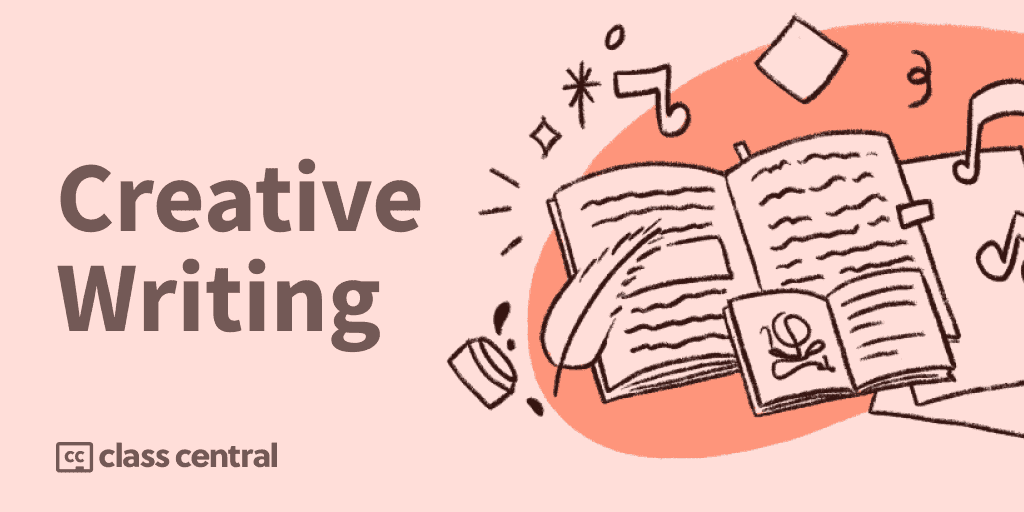
As a lifelong literature enthusiast, I decided to challenge myself in 2010 by participating in NaNoWriMo (National Novel Writing Month), which tasks participants with writing a 50,000-word draft within a month. Although I’ve only achieved this goal twice since then, the experience has been invaluable. I’ve connected with a wonderful community of writers, both online and in person.
Through my experience, I can confidently say that creative writing is a skill that can be developed and honed, just like any other. While traditionally associated with literature, creative writing is increasingly being recognized as a powerful tool in various forms of writing, from copywriting and storytelling to novels and poetry. It has the ability to captivate readers and elevate the impact of written expression.

If you’re searching for the best online Creative Writing courses and resources, you’ve come to the right place. This Best Courses Guide (BCG) is built from Class Central’s catalog of over 300 Creative Writing courses and selected according to a methodology that you can check below.
Click on the shortcuts for more details:
What is Creative Writing?
Courses overview, why you should trust us, how we made our picks and tested them, here are our top picks.
Click on one to skip to the course details:
| 15 hours | |
| 5-6 hours | |
| 4-5 hours | |
| 12 hours | |
| 1-2 hours | |
| 2 hours | |
| 5-6 hours | |
| 1-2 hours | |
| 1 hour | |
| 18 hours | |
| NA |

Related Guides
- Copywriting
- Content Marketing
- 2D Animation
- Digital Art
Special Picks
- Fashion Design
- Music Theory
- Emotional Intelligence
Trending Guides
- Design Thinking
- Graphic Design
- American Sign Language (ASL)
Creative writing is a genre of writing that seeks to evoke emotions and feelings in its readers. It surpasses the limits of traditional forms of literature and emphasizes narrative craft, character development, and the use of literary tropes and poetic traditions. Creative writing finds application in various forms of writing, including screenplays, plays, novels, poems, and other written works. In this guide, I will delve into some of its most popular facets.
Enhancing resilience and creativity through writing
Research shows that the brains of professional writers work differently from those of novice writers. Moreover, creative writing has been found to boost resilience in students . If you want to enjoy the benefits of writing, it’s important to develop the habit of jotting down your thoughts and words. Doing so can help you overcome writer’s block.
Creative writing is so powerful that it’s used in prisons to give inmates a chance to express themselves in programs like PEN America . “By providing resources, mentorship, and audiences outside the walls, we help these writers to join and enrich the broader literary community.”
Creative writing is a skill that can be learned and practiced like any other. Techniques such as ABDCE structure, 1st or 3rd person point of view, “show don’t tell”, dialogues, and tropes can be easily learned through the online courses in this guide.
- Together, they account for over 1M enrollments
- Skillshare, with 2 courses, is the most featured provider
- The single most popular course has nearly 400k enrollments
- Three courses are entirely free or free-to-audit.
Best Fantasy And Short-Stories Writing Lessons For Beginners (Brandon Sanderson)
Besides being an awesome writer, Sanderson is an instructor with a very unique talent for keeping us engaged. He has also made available a full course in creative writing on YouTube , originally presented at Brigham Young University, which includes the most crucial tools for any beginner or even experienced writers. The course is comprehensive and rich in content, with great sound and video quality.
Each video discusses a specific tool or technique, so you can easily select the theme you want to explore next or watch it all in sequence. It’s up to you. I recommend you take your time, watch one video at a time and experiment with each concept, or even better, find a writing buddy or form a group to practice writing together.
What you’ll learn:
- Plot construction, character development, and engaging storytelling
- Techniques for crafting immersive worlds and believable viewpoints
- Insights into the publishing industry, tailored for emerging writers
- Strategies for writing compelling short stories and leveraging them for larger projects.
“Very informative! I’m a beginner writer looking to study writing for video games, and this class gave me a lot of helpful tools to start understanding how stories work/how to organize my ideas! Will definitely be returning to some of these lectures in the future for guidance 👍” – Paige Webster
| Brigham Young University | |
| Youtube | |
| Brandon Sanderson | |
| Beginner | |
| 15 hours | |
| 1.8M | |
| 5/5 (6 reviews) | |
| None |
Best University-level Creative Writing Course (Wesleyan University)

Creative Writing by Wesleyan University is a specialization for those looking for a way to improve their writing structure, scene and character creations and finding your style. Each course includes writing practice (for paying learners) and insightful interviews. It’s worth your time and effort if you are a disorganized writer like myself.
- Techniques for crafting a bracing story with memorable characters and an interesting setting
- How to employ a fresh descriptive style in your writing
- Skills for analyzing and constructively evaluating peer writing
- The ability to refine your writing, critique writing in general, and draw inspiration from existing literature
- The process of drafting, rewriting, and completing an original story in the genre of your choosing.
It should be noted that the peer-grading system often lacks depth. However, the assignments are well-crafted and can be easily evaluated with minimal effort, providing some insights from other participants in the form of feedback or inspiration from their submissions.
“Great information about plot and scene structure. The information about revision was entirely new to me – thank you! The exercises were good and difficult in a good way that helped me hone my writing.” – Laura B, Coursera learner
| Wesleyan University | |
| Coursera | |
| Brando Skyhorse, Amity Gaige, Amy Bloom and Salvatore Scibona | |
| Beginner | |
| 40 hours | |
| 126K | |
| 4.7 (5K) | |
| Yes, paid |
Best Course to Find Your Voice (Neil Gaiman)
Neil Gaiman is currently one the most prolific writers I know of: he’s written books , comics , movies and even TV shows . Even if you’re not a fan of his style, there is definitely something you can learn from him.
In Neil Gaiman Teaches The Art Of Storytelling you will discover Neil’s philosophy on what drives a story and learn to unlock new stories within yourself.
While MasterClass doesn’t sell single courses, a subscription provides access to their entire library, including other writing courses like Margaret Atwood Teaches Creative Writing , Dan Brown Teaches Writing Thrillers , Malcolm Gladwell Teaches Writing , and James Patterson Teaches Writing . If you are considering the purchase, you should definitely enjoy the rest of their catalog.
By the end of this course, you will be able to:
- Discover and develop your unique writing voice
- Generate and develop original ideas
- Create dynamic, well-rounded characters that come to life on the page.
This course includes a 94-page workbook that includes assignments and supplemental material.
| MasterClass | |
| Neil Gaiman | |
| Beginner | |
| 4-5 hours worth of lectures | |
| Paid Certificate Available |
Best Practical Writing Course With Support (Trace Crawford)
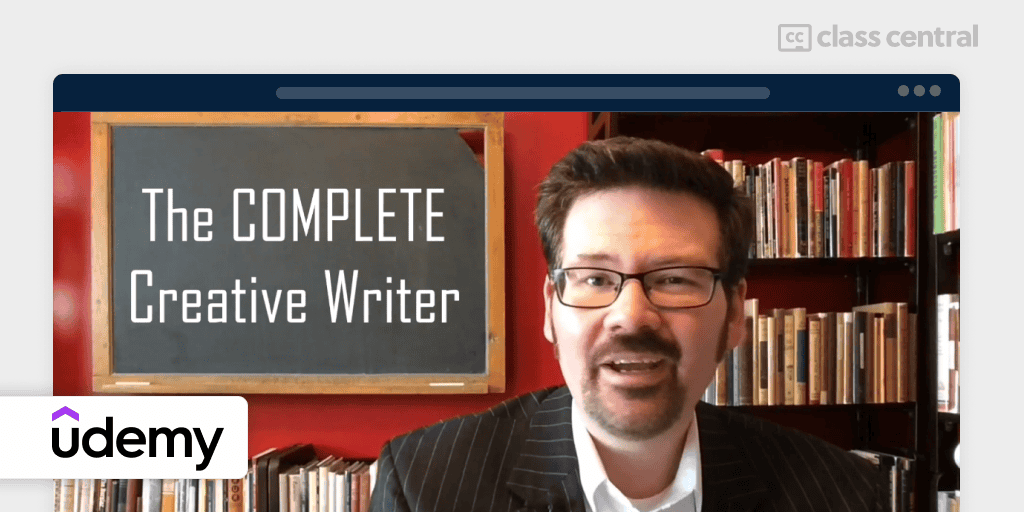
I love it when a passionate teacher like Trace Crawford puts the effort into creating a comprehensive curriculum. COMPLETE Creative Writing – All Genres is a 12-hour course with 145 downloadable resources. In this course, you will learn how to write engaging fiction, poetry, drama, and creative non-fiction, helping you become the successful writer you want to be.
- The four genres of creative writing: fiction, poetry, drama, and creative non-fiction
- How to discover, refine, and share your unique writing voice
- A series of authentic writing assignments designed to target the skills you need to develop
- Writing techniques, literary devices, and specialized skills to enhance your writing
- Opportunities for publishing, podcasts, and how to create a professional creative writing portfolio
- Discover multiple public outlets to share your writing with others as you gain confidence and experience success in your writing ability.
This is a practical creative writing course that includes assignments reviewed by the instructor, though response time may vary.
“The short snippets of theory in combination with the short assignments suits my learning style. I don’t remember the last time I’ve written anything creative, but this course gave me the incentive to set some foundation and its actually quite enjoyable if you stick to it.” – Nikolaos-Stylianos Z., Udemy learner
| Udemy | |
| Trace Crawford | |
| Beginner | |
| 12 hours | |
| 37 quizzes and writing practice | |
| 31K | |
| 4.7 (3.9K) | |
| Available, paid |
Best Course to Overcome Writer’s Block: 10-Day Journaling Challenge (Emily Gould)

I couldn’t resist adding Creative Writing for All: A 10-Day Journaling Challenge to this guide. Emily Gould is a delightful instructor, and her approach to inviting you to participate in the challenge is impossible to decline. It’s the perfect course to overcome writer’s block, which is exactly what she proposes. In this 10-day creative writing challenge, filled with inspiring examples, observation prompts, and clever revision tricks, writers and enthusiasts will be able to express their creativity in a personal and artful way.
This course is the shortest one on the list, and it’s more about the challenge of keeping a journal. If you decide to subscribe to Skillshare, you can also enjoy their entire library of courses. In addition to the other two recommended courses on this list, you can also check out these other Skillshare courses: Writing Suspense: How to Write Stories That Thrill in Any Genre and The Writer’s Toolkit: 6 Steps to a Successful Writing Habit .
| Skillshare | |
| Emily Gould | |
| Beginner | |
| 26 min | |
| 58K | |
| 99% (1K) | |
| Available, paid |
Best Course to Create Fiction From Personal Experience (Shaun Levin)

Shaun’s approach to writing in Short Story Writing: Create Fiction from Personal Experience is an unusual one. It draws from your personal experience to create a compelling fictional story. I can say from experience that this technique will help you write with more depth and authenticity. Every time we bring our own life to the story, it becomes alive, believable and relatable. In a way, all fictional stories are based on the author’s life.
This course will help you with techniques and a series of practical exercises to start writing your scenes from a more philosophical point of view, creating compelling stories. You’ll learn how to delve into your imagination to find everything you’ll need to become a prolific writer, no matter where you are.
By the end of the course, you will have a final project that will receive feedback from Shaun and other learners as well. Actually, if you want to check it out, in the course page on Domestika you can open the submitted projects and read the comments.
Shaun’s other courses: Creative Writing for Beginners: Bringing Your Story to Life .
“A practical course. Shaun Levin talks about theory but also demonstrates his process, which was invaluable. The exercises got my creative juices flowing. Thinking about doing his other course in the future.” – Maya Dicheva
| Domestika | |
| Shaun Levin | |
| Beginner | |
| 2 hours | |
| 30K | |
| 99% (764) | |
| Available, paid |
Best Course to Make Writing Less Stressful with Best Practices (Jennie Nash)

If you struggle to start or get stuck in your writing, Write Your Book: Start Strong and Get It Done can help. With good advice and emotional support, you’ll learn techniques to make writing less stressful. The accompanying workbook guides you to think methodically by asking the right questions to keep you focused on your story and not chasing your own tail.
In this class, you’ll learn how to:
- Design every element of your novel or memoir, including the protagonist, plot, story structure and a project success plan
- Define your narrator’s voice
- Determine where your story begins and where it ends
- Decide what point you’re making about human nature
- Make sure you’re giving your ideal reader exactly what they want
- Gain the confidence you need to push past any doubts and finish your book.
This course is more of a masterclass, so there are no assignments included but it teaches good practices and provides a very useful workbook.
| CreativeLive | |
| Jennie Nash | |
| Beginner | |
| 5-6 hours | |
| 18.8K | |
| 100% (29) | |
| None |
Best Course to Create A Compelling Story (Lisa Cron)
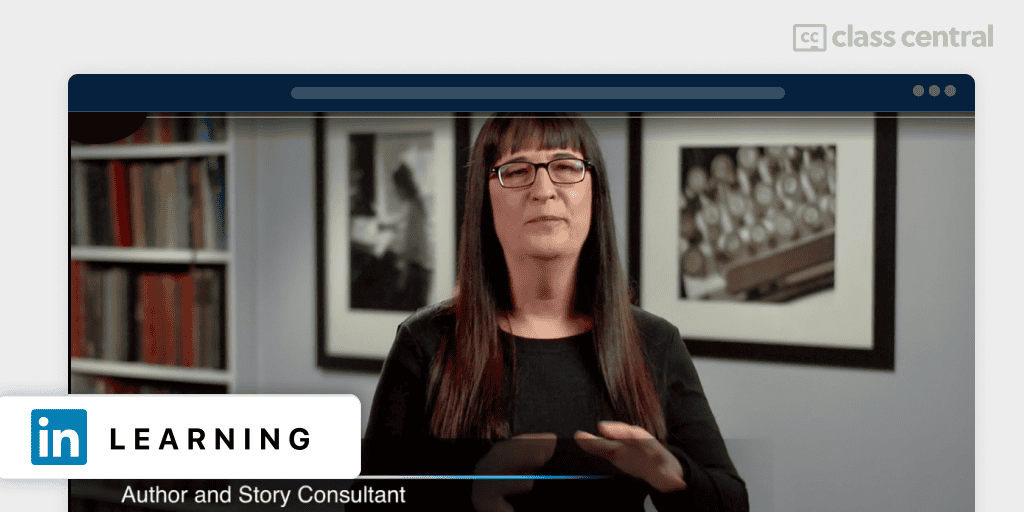
Writing: The Craft of Story is a series of well-produced lectures covering the basic building blocks of a story. Taught by author Lisa Cron, you will learn how to create compelling stories based on the way the brain responds to storytelling. This course emphasizes the importance of capturing the reader’s attention through techniques such as suspense, exploring the protagonist’s inner issues and dreams, specificity, and cause and effect. Upon completion of the quizzes, you will receive a certificate for your LinkedIn profile. Additionally, you can watch all the videos without subscribing to the course.
“Learning the fundamentals of crafting a story was and is a fascinating experience. And yes, I would highly recommend writing to anyone interested in learning how to express the communication of feeling.” – Nicole Gillard, LinkedIn learner.
| LinkedIn Learning | |
| Lisa Cron | |
| Beginner | |
| 1-2 hours worth of material | |
| 100K | |
| 4.7 (649) | |
| Available, paid |
Best Course to Write Personal Essays with Impact (Roxane Gay)

Discover the art of crafting powerful personal essays with best-selling author Roxane Gay in her course, Creative Writing: Crafting Personal Essays with Impact . Through her honest and thoughtful approach, Roxane will help you find your story, craft your truth, and write to make a difference.
This master class offers eight video lessons that are filled with practical guidance, actionable tactics, and example essays to guide you from the first idea to a final, publication-ready work.
You’ll learn how to:
- Find a specific purpose for telling your story
- Connect your work to larger conversations and timely themes
- Conduct crucial research to support your work
- Navigate personal memories to write your truth
- Write and revise your final work, and submit your work for publication.
Additionally, the class provides a downloadable worksheet to support your ongoing creative nonfiction writing practice, as well as links to additional resources.
If you enjoy creative nonfiction writing, you might consider this course that’s also on Skillshare: Creative Nonfiction: Write Truth with Style (Skillshare Original) by Susan Orlean
| Skillshare | |
| Roxane Gay | |
| Beginner | |
| 1 hour | |
| 45K | |
| 100% (1.2K) | |
| Available, paid. |
Best Course to Develop Your Ideas And Research for Characters (The Open University)

Start Writing Fiction explores the writing process, from journaling and idea development to reflection and editing. It features insights from established writers such as Louis de Bernières, Patricia Duncker, Alex Garland, Abdulrazak Gurnah, Tim Pears, Michèle Roberts, and Monique Roffey, who share their approaches to research and turning events into plot. Led by Derek Neale, a novelist and short story writer, this course provides a comprehensive understanding of the writing rituals and techniques used by successful writers.
You’ll get to critique the work of other writers and receive feedback. This course is designed for individuals interested in starting or improving their fiction writing and does not require prior experience in the subject.
You’ll learn:
- Creation of characters in fiction
- Different sources and ways of presenting characters in stories
- Reading as a writer
- Writing practice including creativity, research, observation and editing
- Peer reviewing, workshops and the importance of feedback.
“This course takes learners through many aspects of writing such as developing characters, observing and describing details, finding inspiration, writing and editing. It includes some peer reviews which can be varying in quality. I was lucky enough to have some of my writing reviewed by a reviewer who gave very helpful and positive feedback.” – Pat Bowden
| The Open University | |
| Future Learn | |
| Derek Neale | |
| Beginner | |
| 24 hours | |
| 389,780 learners | |
| 4.7 (923) | |
| Available, paid |
What’s Next
Scribophile is one of the largest online writing communities. You can get feedback on your writing and join writing groups. If you decide to join with a free plan, you need to collect points by reviewing other writers’ work before submitting your own work for review. They also developed some advanced tools for evaluating work and guidelines to make sure you give/receive feedback that is actually meaningful.
NaNoWriMo started out as a month-long challenge where you invite your friends and join other writers in your region, be it online in their forums or in person, to challenge yourself in writing your first draft. Nowadays, they run all-year round writing challenges (but November is still the biggest one in terms of participation). What is cool about it is you actually get to meet people in real life with various writing skills and backgrounds. I was able to make some great friends over the years and even met a few professional writers that decided to join our local group just to support us.
If you have any resources you would like to have added here, leave a comment below.
Class Central , a Tripadvisor for online education, has helped 60 million learners find their next course. We’ve been combing through online education for more than a decade to aggregate a catalog of 200,000 online courses and 200,000 reviews written by our users. And we’re online learners ourselves: combined, the Class Central team has completed over 400 online courses, including online degrees.
Trying to find “the best” can be daunting, even for those of us who live and breathe online courses. Here’s how I approached this task.
First, I combed through Class Central’s Catalog and the internet to find a variety of free and paid open courses, some with certificates. You don’t need to enroll in a university to learn about creative writing.
When choosing courses, I considered the following factors:
- Renowned Institutions : I looked for recognized institutions in creative writing
- Instructor experience : I sought instructors with extensive experience in creative writing and engaging presentation styles
- Popularity : I checked numbers of enrollments and views to find popular courses
- Course content : I examined courses that covered a range of topics and presentation styles, including the basics and more advanced topics. I watched some course videos to sample courses I hadn’t already taken
- Learner reviews : I read learner reviews (when available) to get a sense of the quality of each course, leveraging the Class Central database with its thousands of course ratings and reviews written by our users as well as available course provider reviews.
Then, I defined the scope for these recommendations. A creative writing course can cover various topics, so I chose top courses from a range of sub-fields.
Ultimately, I used a combination of data and my own judgment to make these picks. I’m confident these recommendations will be a reliable way to learn about creative writing.

Fabio Dantas
Leave a reply.
This site uses Akismet to reduce spam. Learn how your comment data is processed .
Browse our catalog
Discover thousands of free online courses from top universities around the world like MIT, Stanford, and Harvard.
Computer Science 13,168 courses
- Artificial Intelligence
- Algorithms and Data Structures
- Internet of Things
- Information Technology
- Computer Networking
- Machine Learning
- Deep Learning
- Cryptography
- Quantum Computing
- Human-Computer Interaction (HCI)
- Distributed Systems
- Blockchain Development
- Operating Systems
- Computer Graphics
- Automata Theory
- Digital Image Processing
- CSS Animation
- Morph Transition
Business 21,417 courses
- Management & Leadership
- Entrepreneurship
- Strategic Management
- Industry Specific
- Business Intelligence
- Human Resources
- Project Management
- Business Software
- Customer Service
- Nonprofit Management
- Operations Management
- Corporate Governance
- Business Plan
- Business Proposal
- Management Consulting
- Business Math
Humanities 8,301 courses
- Language Learning
- Grammar & Writing
- Linguistics
- Library Science
- Crisis Management
- Emergency Management
- Language Arts
Data Science 4,791 courses
- Bioinformatics
- Data Mining
- Data Visualization
- Jupyter Notebooks
- Process Mining
- Text Mining
- Topological Data Analysis
Personal Development 5,702 courses
- Communication Skills
- Career Development
- Self Improvement
- Presentation Skills
- Self-Acceptance
- Mental Toughness
- Self-Doubt Management
- Personal Empowerment
- Habit Tracking
Art & Design 20,638 courses
- Digital Media
- Visual Arts
- Design & Creativity
- Art Therapy
- Art Composition
8 Writing Tips I Wish I Knew Before I Started Blogging
Updated: July 17, 2018
Published: August 18, 2017
I wrote my first blog post two summers ago. And I wish I could erase it from the internet. Reading it is like looking at my middle school Facebook pictures -- it’s almost too cringe-inducing.

Maybe I shouldn’t be so hard on myself, though. I had just finished my freshman year of college, and the last paper I wrote was about the Odyssey . I didn’t know what I was doing.
But after completing several content marketing internships and taking classes like business writing , electronic journalism, and creative writing, I’ve learned how to write for an audience. Blogging is almost second nature to me now.
If you're just starting out with blogging and struggling to produce something you're truly proud of, don't get discouraged. You don’t need to enroll in a bunch of writing classes or join a content marketing team to become a good blogger (although it certainly doesn't hurt). You can hone your writing skills online -- and this blog post can be one of your bookmarkable resources.
Listed below are eight essential writing tips I’ve gleaned from all my classes and content marketing experience. Check them out to learn how to engage your audience with clear, concise, and compelling content -- and make me even more embarrassed about the first blog post I ever wrote.
8 Essential Writing Tips for Crafting Clear, Concise, and Compelling Content
1) trim the fat..
The more unnecessary words your trim from your writing, the easier it is to understand. Concise writing is lean. And readers can zip through it with little effort. To sharpen your writing , follow the four pointers below:
- Avoid linking verb phrases like “Sam was writing about his van.” “Sam wrote about his van.” sounds more forceful. Linking verbs have a passive effect, which is why they can’t pack much of a punch.
- Change prepositional phrases like “The decision of the board was final.” to “The board’s decision was final.” Prepositional phrases make sentences longer and harder to follow.
- When a noun ends in -tion, change the noun to a verb. For example, “They will collaborate to create a new style guide.” sounds cleaner than “They will collaborate in the creation of a new style guide.”
- Reduce verb phrases like “The results are suggestive to the fact that on-page SEO still works.” to simple verb phrases like “The results suggest that on-page SEO still works.” The latter sounds much smoother.
2) One sentence should only cover one idea.
A clear sentence that’s easy to understand covers one main idea. But sometimes writers focus too much on sounding smart rather than conveying information in a simple way. This can lead to complex sentences that confuse readers.
You must remember your readers don’t care about your writing prowess. They want to quickly understand the solutions to their own problems, and simple sentences can fulfill that need.
Use the Hemingway App to gauge whether your sentences are bold and clear.
3) Sentences don’t live in isolation.
If you want to craft a compelling sentence, you need to account for its surrounding sentences first. Using the same word in consecutive sentences or covering similar ideas in two different sentences is redundant. To create a more stimulating experience for your readers, vary your language and cut repeat information.
Use Power Thesaurus to replace overused words with dynamic synonyms.
4) Vary sentence length and structure.
I saw a graphic called “How to Write” on Twitter about a year ago, and it took my writing skills to the next level. Take a look.

Humans crave variety. And just like how short, medium, and long sentences complement each other, simple and compound sentences complement each other too.
Your writing becomes repetitive and boring when your sentences have the same structure or length. Diverse sentences make your writing pleasant to read.
5) Scrap the cliches.
Would it be cliche to begin this paragraph with a cliche? I thought so. That’s why I didn’t do it. Cliches sap your content’s originality.
People use these phrases so much that they lose their true meaning. Some studies even claim that figures of speech like “hungry as a horse” or buzzwords like “leverage” can’t activate the prefrontal cortex , which is responsible for experiencing emotions. They’re too stale to impact you.
A good way to test cliches is by asking yourself if you’ve heard the term before. If so, aim to express your idea in a new, fresh way. You can also nix cliches by filtering your content through a cliche finder tool .
6) Appeal to the senses.
Good fiction writers can make their readers experience the stories they write. By using concrete details that appeal to their reader’s senses, they can paint vivid pictures with only words.
Skeptical? Well, in a 2012 study at Emory University, researchers monitored participants’ brain activity when they read metaphors involving texture . Metaphors like “He had leathery hands,” lit up their sensory cortex, which is responsible for perceiving texture through touch. When they read a similar phrase like “he had strong hands,” their sensory cortex didn’t activate.
“Leathery” is a concrete detail that appeals to touch. And it places readers into the exact scene the writer described. Metaphors and similes also help people visualize things by comparing a concrete picture with an abstract idea.
Business writing definitely differs from creative writing, but you can still harness the power of sensory language in your blog posts. If your readers can see, hear, touch, smell, or taste your ideas, then they’ll be hooked on your content.
Having trouble grasping this concept? Here are some examples:
- Visual : “You immediately glue your eyes to the skip button's countdown clock and wait … until those lingering seconds finally slug by .” - Can you see how long this ad is?
- Auditory : “But the 20 pen slips below were so hilarious and shocking that my laughter pierced through all my colleagues' noise-canceling headphones.” - Can you hear his obnoxious laugh?
- Touch : “Let your well-formatted paragraphs put her attention in a guillotine hold .” - Can you feel how captivated she is?"
- Smell and taste : “Turn bland writing into zesty sound bites.” - How strong was that quip’s flavor ?
7) Let things go.
When you write an elegant paragraph or sentence, your inner author latches onto it. But even if it doesn’t fit within the scope of your content, you still might try to force it in there. You can get too attached to let it go.
Paragraphs or sentences that don’t deepen your readers’ understanding of the topic, provide new information, or spark interest in the next section are just fluff. And all fluff does is muddle your writing.
Instead of building around fluff, strip it away and start something new from scratch. Abandoning beautiful writing is always hard, but if it doesn’t provide value to your readers, let it go.
8) Take a break.
Have you ever reread your final draft so much that you can’t determine whether it’s Neil Patel good or high school essay bad? You can even convince yourself that a lousy draft looks great if you’ve worked on it for long enough.
Before you submit your final draft, it’s crucial to walk away from it. Forgetting about your work will help you develop fresh editing eyes that can discover overlooked errors and new creative opportunities.
Eddie Shleyner , copywriter and content marketer at Workforce Software, follows " The Rule of 12 " when he edits his blog posts. After writing his final draft, he walks away for 12 hours. Then he makes his final round of edits, where he always finds a mistake or a better way to polish his copy.
What writing tips do you find useful? Let us know on Twitter!
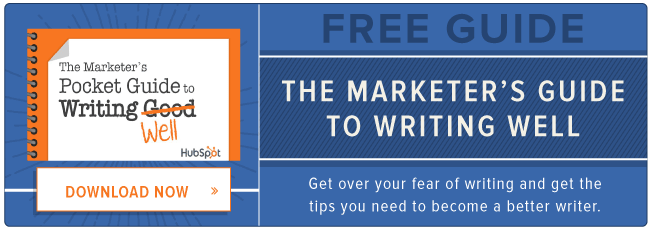
Don't forget to share this post!
Related articles.

Mastering Writing Samples for Jobs: Insight and Tips From My 9-Month Job Hunt
![creative writing better blog How to Write a Memo [Template, Examples & HubSpotter Tips]](https://www.hubspot.com/hubfs/how-to-write-memo_0.webp)
How to Write a Memo [Template, Examples & HubSpotter Tips]
![creative writing better blog How to Write a Blog Post: A Step-by-Step Guide [+ Free Blog Post Templates]](https://www.hubspot.com/hubfs/how-to-start-a-blog-2.webp)
How to Write a Blog Post: A Step-by-Step Guide [+ Free Blog Post Templates]
![creative writing better blog [UPDATE] How to Make a Facebook Business Page That Keeps People Engaged](https://53.fs1.hubspotusercontent-na1.net/hubfs/53/how-to-make-a-facebook-business-page-compressor.jpg)
[UPDATE] How to Make a Facebook Business Page That Keeps People Engaged

How to Organize Your Email: 11 Management Tools

Product Videos: 10 of the Best Promotional Product Videos Ever

9 Simple Ways to Write a Good Introduction Sentence

What is Deep Learning? Here's Everything Marketers Need to Know

7 Soft Skills You Need to Achieve Career Growth

Comma Rules for Clear Writing (with Examples)
Save time creating blog posts with these free templates.
Marketing software that helps you drive revenue, save time and resources, and measure and optimize your investments — all on one easy-to-use platform

GET READY TO START YOUR WRITING ADVENTURE
Ready, set, write: a guide to creative writing.

Writing Tips: Kill Your Darlings
Writing Tips
Kill your darlings. It's a common piece of writing advice, but what does it mean? I once thought that "kill your darlings" was strictly for storytellers removing unnecessary or...

Writing Resources: A Poetry Handbook
Writing Resources
This post contains affiliate links. Poetry is the music of language, the fine art of the written word. It demands a broad vocabulary and creative thinking. It promotes rhythm and...

12 Nature-Inspired Creative Writing Prompts
Creative Writing Prompts
Today's post includes a selection of prompts from my book, 1200 Creative Writing Prompts. Enjoy! Creative writing prompts are excellent tools for writers who are feeling...

Poetry Writing Exercises to Engage the Senses
Poetry Writing Exercises
Ah, the senses: sight, sound, smell, taste, and touch. How do they relate to poetry writing? We delight in the pleasures of the senses, but infusing poetry with sensory...

Tips for Developing Story Writing Ideas
Story Writing
This post contains affiliate links that earn commissions. Short stories, flash fiction, novels, and novellas: there are countless stories floating around out there -- and those...

Reading, Writing, and Reviewing Good Poems
Poetry Writing
I've always loved writing poetry. It's a highly artistic and expressive form of writing. Poems can be intellectual, emotional, or abstract. Poetry can feel like a snapshot of a...
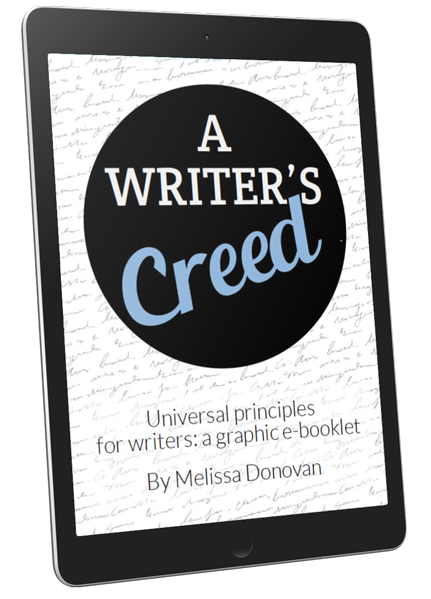
101 Creative Writing Exercises
Explore fiction, poetry, and creative nonfiction writing with exercises that stretch your skills and your imagination.
You’ll discover tools and techniques that will improve your writing through fun yet practical projects that you can submit and publish.
101 Creative Writing Exercises gives you plenty of practice and fresh ideas.
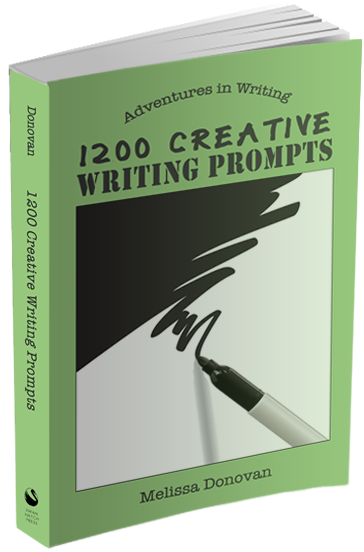
1200 Creative Writing Prompts
Are you looking for fresh creative writing ideas? Do you want to try writing in new forms and genres? 1200 Creative Writing Prompts is packed with fiction, poetry, and creative nonfiction prompts that will inspire and motivate you to write.
If you tackle just one prompt per day, this book will provide you with writing ideas for over three years. Spark your next writing project today.
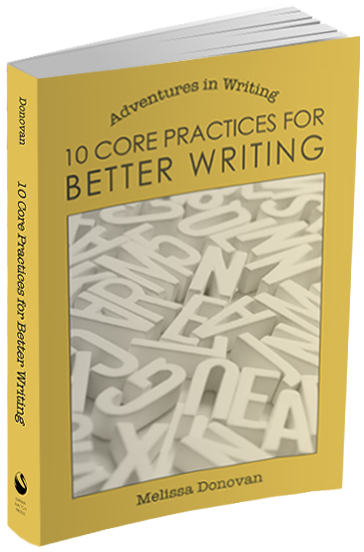
10 Core Practices for Better Writing
Each of the ten practices presented in this book strengthen your writing skills and promote excellence. By adopting these simple but effective writing practices, you will master the craft of writing. All it takes is dedication and self-discipline.
10 Core Practices for Better Writing is ideal for writing groups, classes, and workshops as well as individuals who want to improve their writing.
Start your journey toward better writing today.
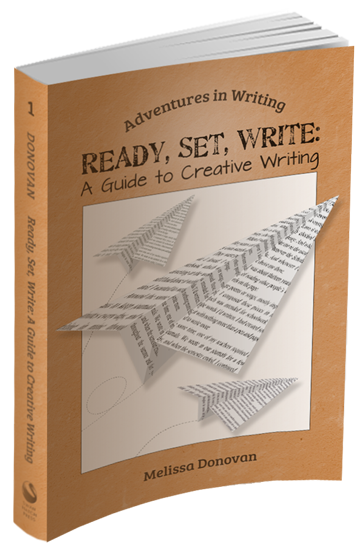
Ready, Set, Write: A Guide to Creative Writing
Ready, Set, Write: A Guide to Creative Writing takes you on a tour through various forms of writing, tools of the trade, creativity techniques, and practical tips for writing. Plus, there are plenty of writing projects and activities for you to explore as you stretch and tone your writing muscles.
Written for hobbyists and aspiring professionals alike, Ready, Set, Write is ideal for young and new writers, but it also works as a refresher for seasoned scribes.
Get ready to start your writing adventure!

Writing Coach
I offer mentoring for bloggers and writers of fiction and creative nonfiction.
Pin It on Pinterest

IMAGES
VIDEO
COMMENTS
The Creative Penn. A New York Times and USA Today bestselling thriller author, Joanna Penn is behind The Creative Penn . She also writes books for writers—her 21 titles have sold more than a half million copies. She's a speaker, an entrepreneur, runs Curl Up Press, and has been named one of the top 100 Creative Professionals in the UK ...
We've compiled a list of the best writing blogs on the internet for you to learn and grow from. Here are the best writing blogs we'll cover for you: SelfPublishing.com. The Write Life. Writer's Digest. Write to Done. The Write Practice. Count Blogula by Jenna Moreci. The Creative Penn.
I started The Write Practice in 2011 with one goal, to help writers like me. To help them practice, become better writers, and get their best writing published. The Write Practice is here to kick-start your writing practice. You have to write millions of words no one is ever going to see before you can write the ones that will change someone ...
Blogging is one of my favorite writing passions, along with writing fiction and poetry. I have written a number of guest posts for some pretty cool blogs. I am the author of several books on the craft of writing, including Ready, Set Write, 101 Creative Writing Exercises, 1200 Creative Writing Prompts, and 10 Core Practices for Better Writing.
Brian Klems online editor blog. By. Brian A. Klems. Brian A. Klems is the former Senior Online Editor of Writer's Digest, and author of Oh Boy, You're Having a Girl (Adams Media/Simon & Schuster). Follow him on Twitter @BrianKlems. Check out Robert Lee Brewer's list of the best blogs about writing better and getting published.
Here are the top writing blogs that every writer should follow: 1. The Creative Penn. The Creative Penn is one of the world's most comprehensive writing blogs. Joanna Penn, a New York Times and USA Today bestselling author, was the first to establish it. She has decades of writing experience, and her blog is chock-full of useful information ...
Writing Tips: Be Yourself. As writers, we strive to connect with a reading audience. After all, writing is all about communication. Whether we're sharing our personal experiences, imparting ideas and information, or creating rich, compelling stories, we want our words to ring true. We want our work to be authentic.
Find the Ending Before You Return to the Beginning. 4. The Write Practice. Joe Bunting created The Write Practice to help writers like him improve their craft. It's a blog with a focus on deliberate practice, which means you've got to write tons of words to improve your writing and eventually get published.
The Writing Reader: This blog is packed with writing prompts based on words and images interspersed with link round-ups and the occasional article on craft. Each post includes prompts for a variety of forms, including fiction, journaling, art, and nonfiction. The Passive Voice: This treasure trove of news and information gets updated several ...
Here's how our contest works: every Friday, we send out a newsletter containing five creative writing prompts. Each week, the story ideas center around a different theme. Authors then have one week — until the following Friday — to submit a short story based on one of our prompts. A winner is picked each week to win $250 and is highlighted ...
Here are 6 ways to level up your skills. Click to tweet! 1. Know your medium and its purpose. Writing is, first and foremost, a form of communication. A piece of text may communicate a story, an idea, a feeling, or reasoning. As such, the easiest thing you can do to write better is to clarify the purpose of your work:
Simple - Just create writing goals for yourself. Examples of writing goals might include, to write 100 words every day or to write 600 words by the end of next week. Whatever your goals make sure you can measure them easily. That way you'll know if you met them or not.
A creative writer strives to tell unique stories in a distinctive voice. Yet with all the fiction writing already out there in the world, it can be hard to feel that your work is legitimately creative compared to the competition. You could be a first-time writer completing in a high school creative writing course, a hobbyist working on your first novel, or a seasoned pro with an MFA who's ...
Give them an excuse to escape into the reality that you have created. Let them see, hear, feel, smell, laugh, cry, love and hate. Show your reader the world that you've created, don't just tell them about it. (6) Check your Commas. While commas can be effective many inexperienced writers tend to sprinkle their sentences with them.
If so, this blog will help. Here is a list of 5 handy tips that will help you to become an even better creative writer. ... If '5 Tips That Will Make You Better at Creative Writing' has been useful, click the links below for more writing related posts: How To Stay Motivated When Writing. 5 Tough Trials You Can Experience as a Writer. 6 Ways ...
2. Start journaling your days. Another easy way to get started with creative writing is to keep a journal. We're not talking about an hour-by-hour account of your day, but journaling as a way to express yourself without filters and find your 'voice in writing'. If you're unsure what to journal about, think of any daily experiences that ...
Share your techniques for writing better by leaving a comment. For a more in-depth look at these practices for writing better, and for tips on how to integrate them into your life, pick up a copy of 10 Core Practices for Better Writing. This guide to writing better offers resources, techniques, and practices to help you consistently strengthen ...
Creative writing is writing meant to evoke emotion in a reader by communicating a theme. In storytelling (including literature, movies, graphic novels, creative nonfiction, and many video games), the theme is the central meaning the work communicates. Take the movie (and the novel upon which it's based) Jaws, for instance.
Continuously seek to learn and grow as a writer by attending workshops, reading about writing, and experimenting with new techniques. Remember, improving your creative writing skills takes time and dedication. Patience, persistence, and a willingness to learn are key to becoming a better writer.
Outside the world of business writing and hard journalism lies an entire realm of creative writing. Whether you're brand-new to the craft, a nonfiction writer looking to experiment, or a casual creative writer wanting to turn into a published author, honing your creative writing skills is key to your success. A Series of Scenes.
15 hours. Best University-level Creative Writing Course (Wesleyan University) 5-6 hours. Best Course to Find Your Voice (Neil Gaiman) 4-5 hours. Best Practical Writing Course With Support (Trace Crawford) 12 hours. Best Course to Overcome Writer's Block: 10-Day Journaling Challenge (Emily Gould) 1-2 hours.
4) Vary sentence length and structure. I saw a graphic called "How to Write" on Twitter about a year ago, and it took my writing skills to the next level. Take a look. Humans crave variety. And just like how short, medium, and long sentences complement each other, simple and compound sentences complement each other too.
Story Drills: Fiction Writing Exercises. Story Drills: Fiction Writing Exercises is packed with lessons and exercises to help you learn the craft of storytelling.You'll get practical tools and techniques for story development; study and analyze your favorite stories; gain experience through writing practice; and get questions and worksheets to help you create stories that resonate with readers.